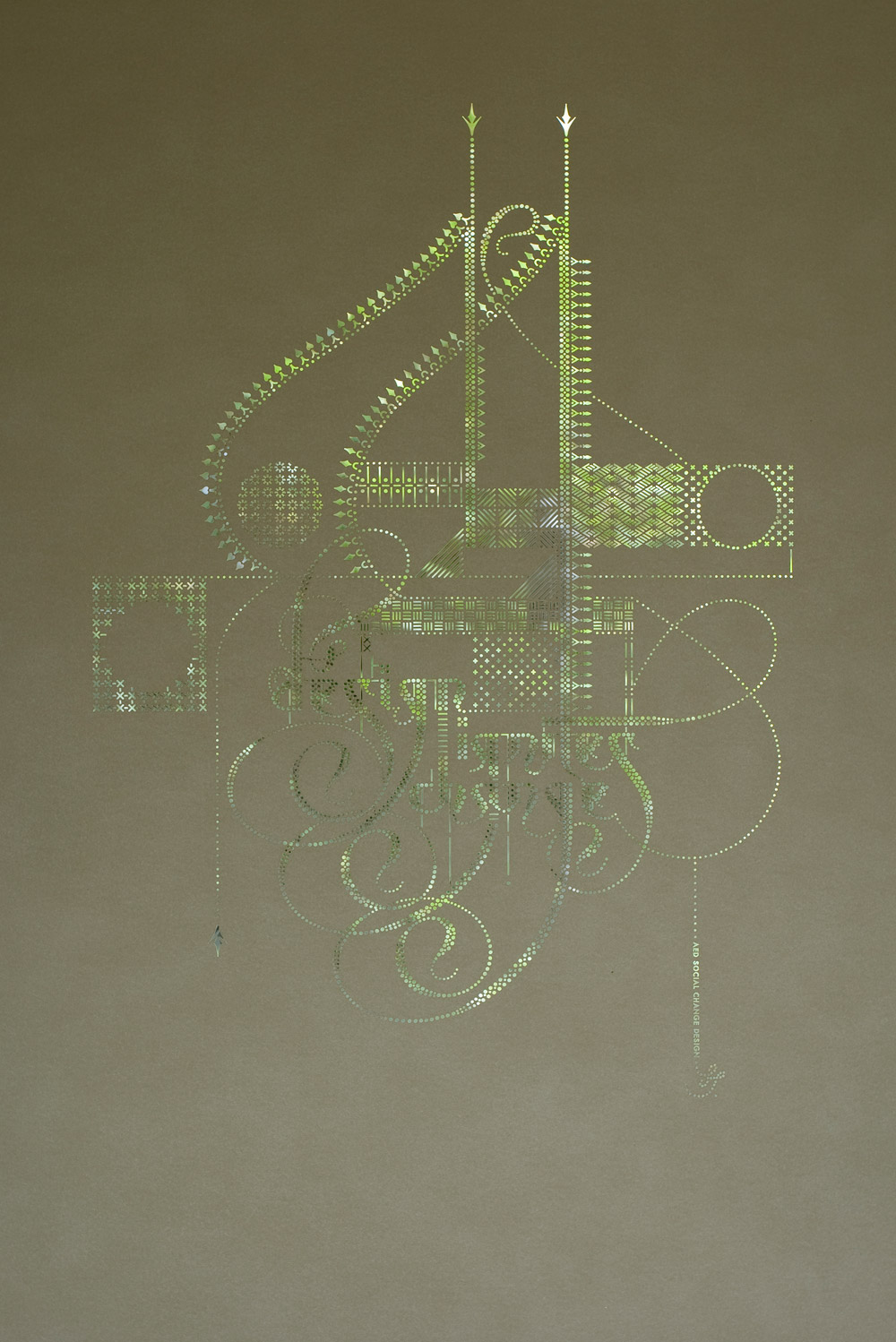cards (various)
playing cards
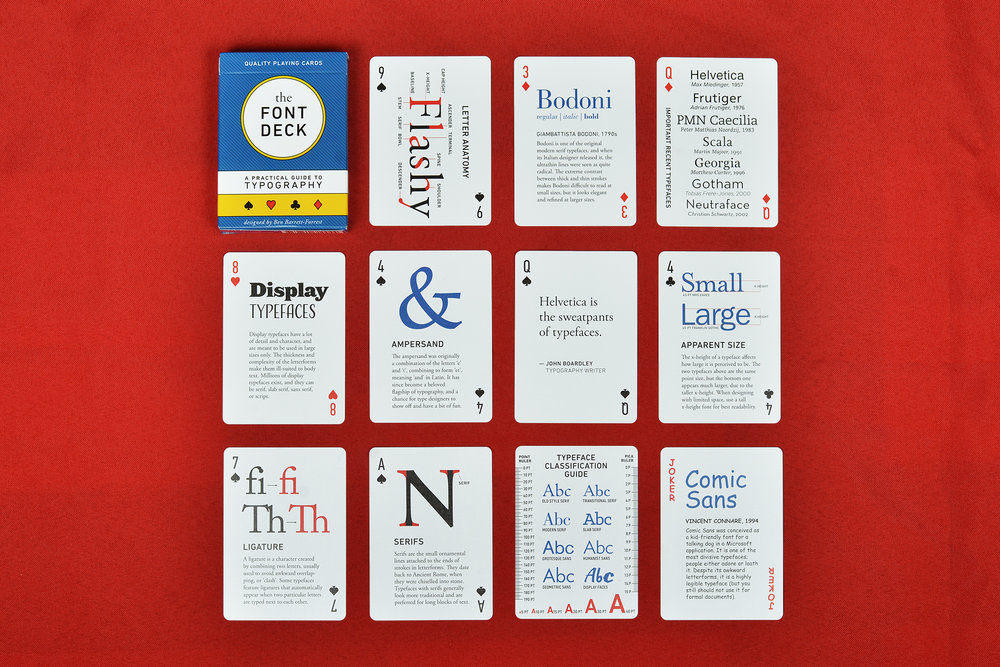
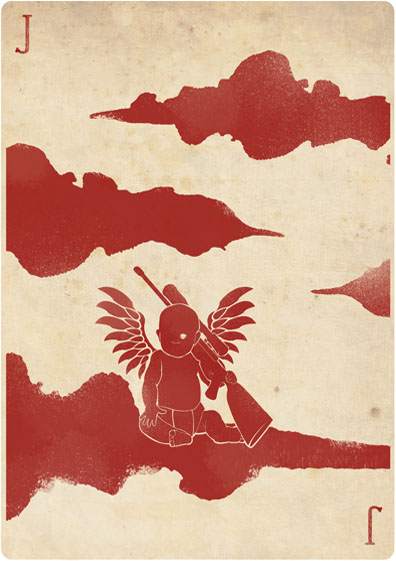
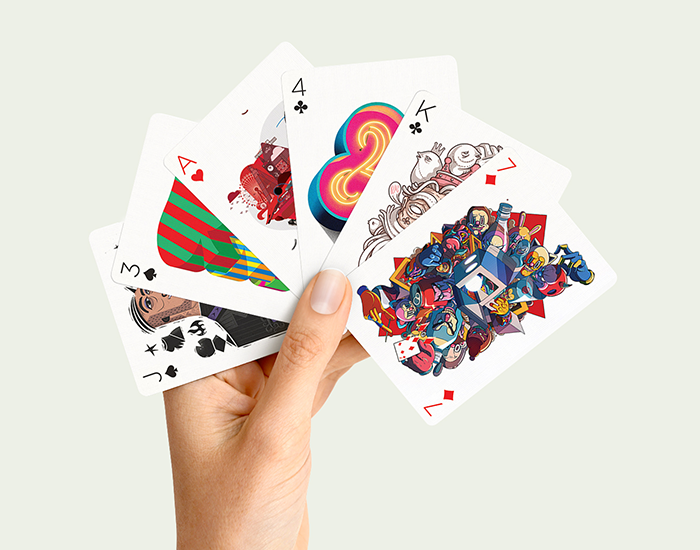 |
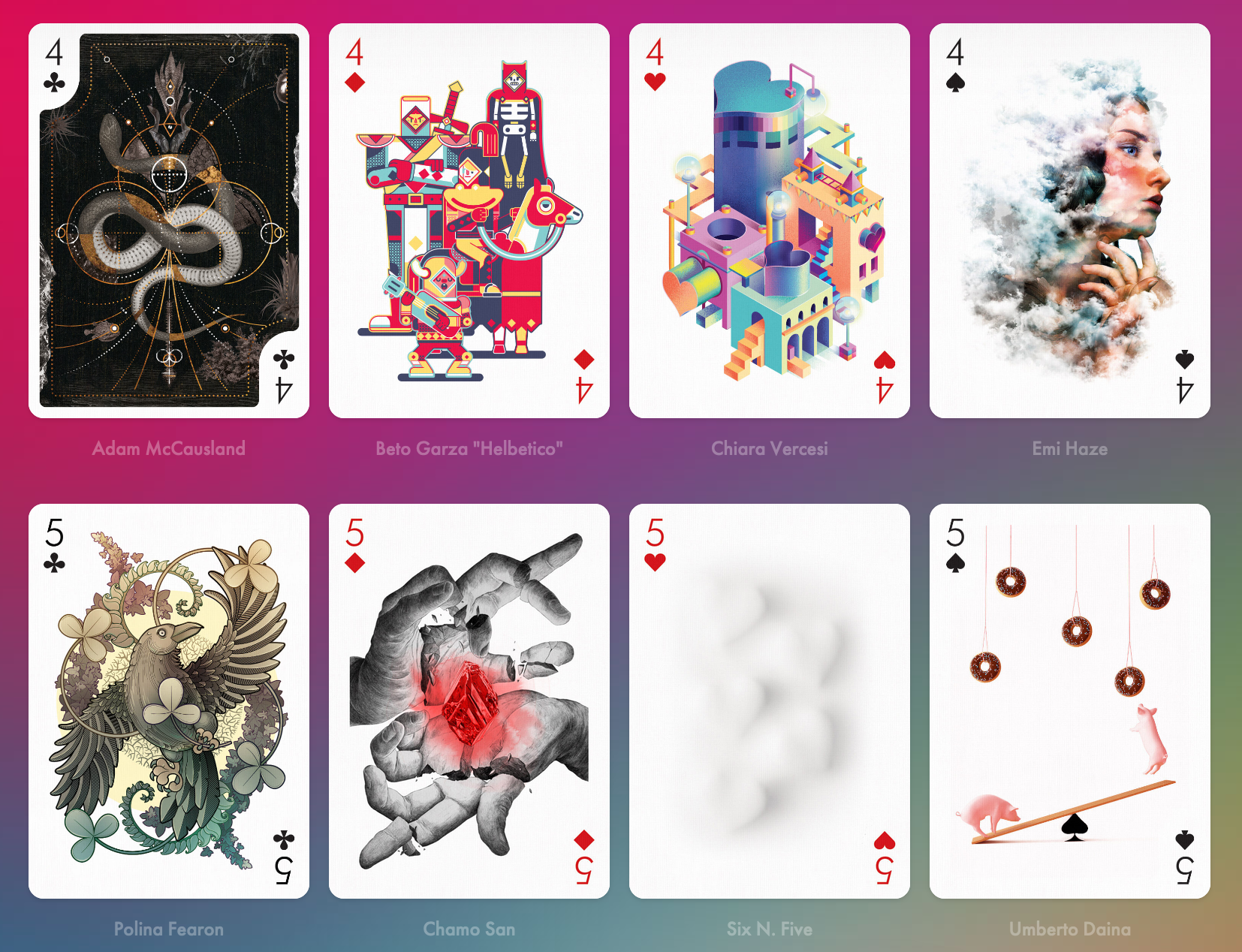 |
| The Playing Arts deck “eclectic and powerful, with 55 artists from all over the world involved” https://playingarts.com/en/special |
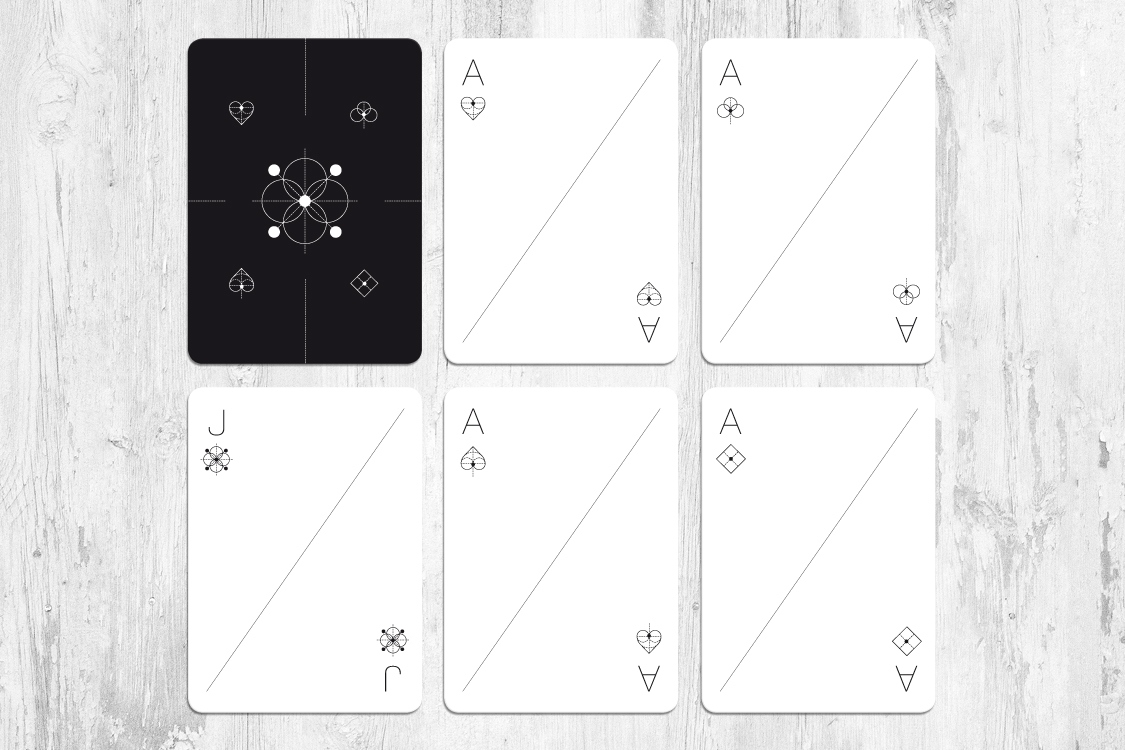
 |
 |
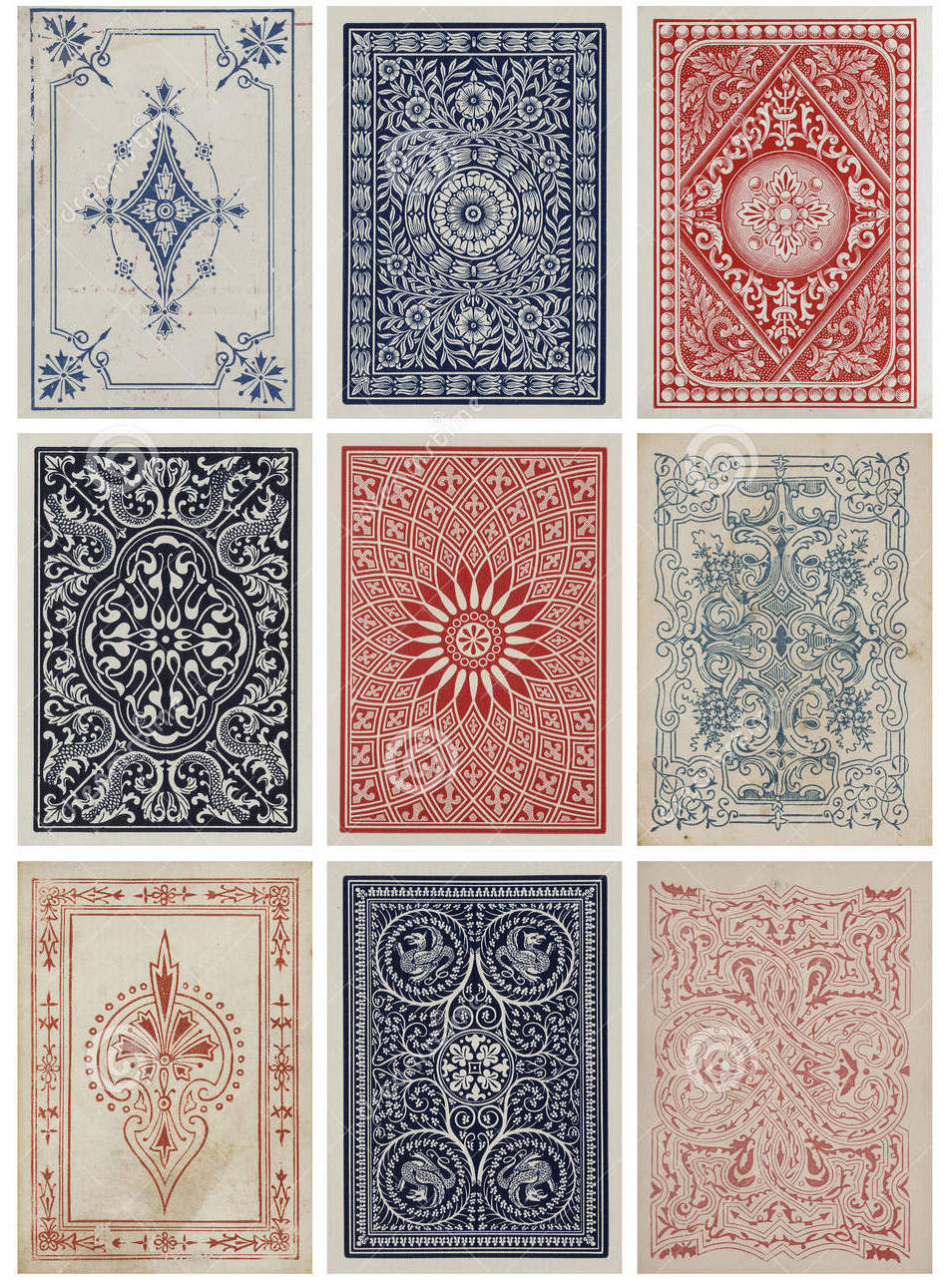 |
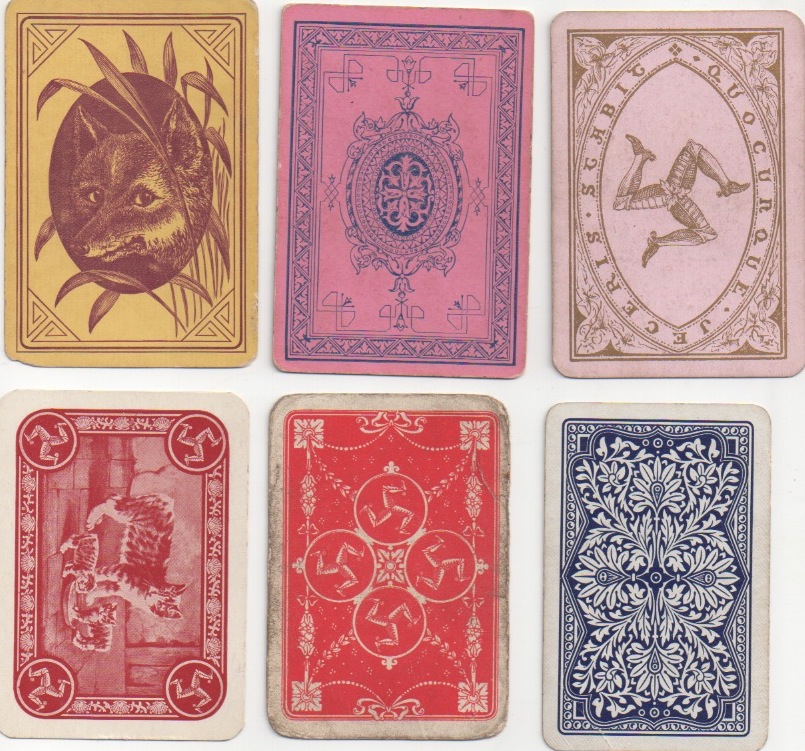 |
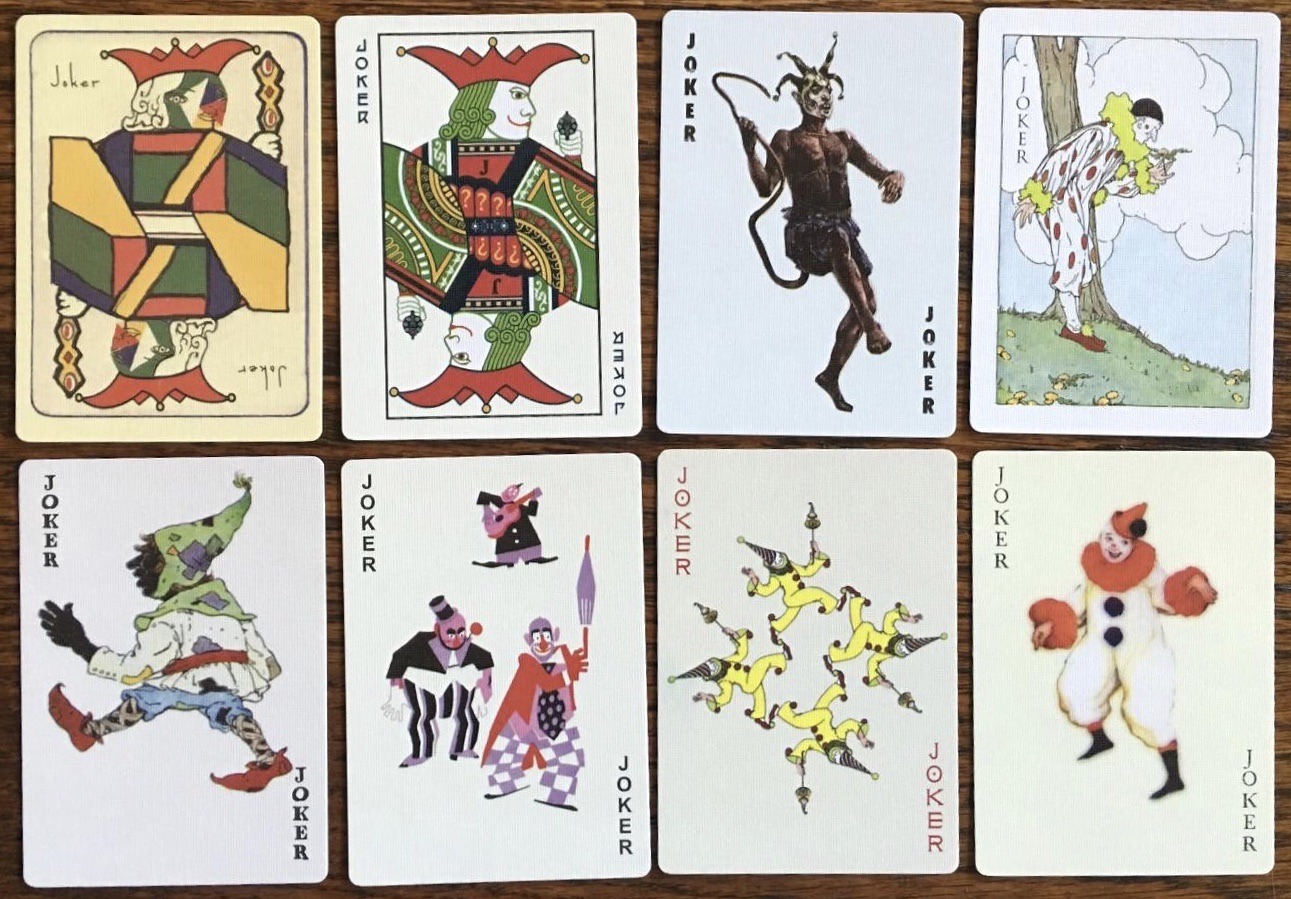 |
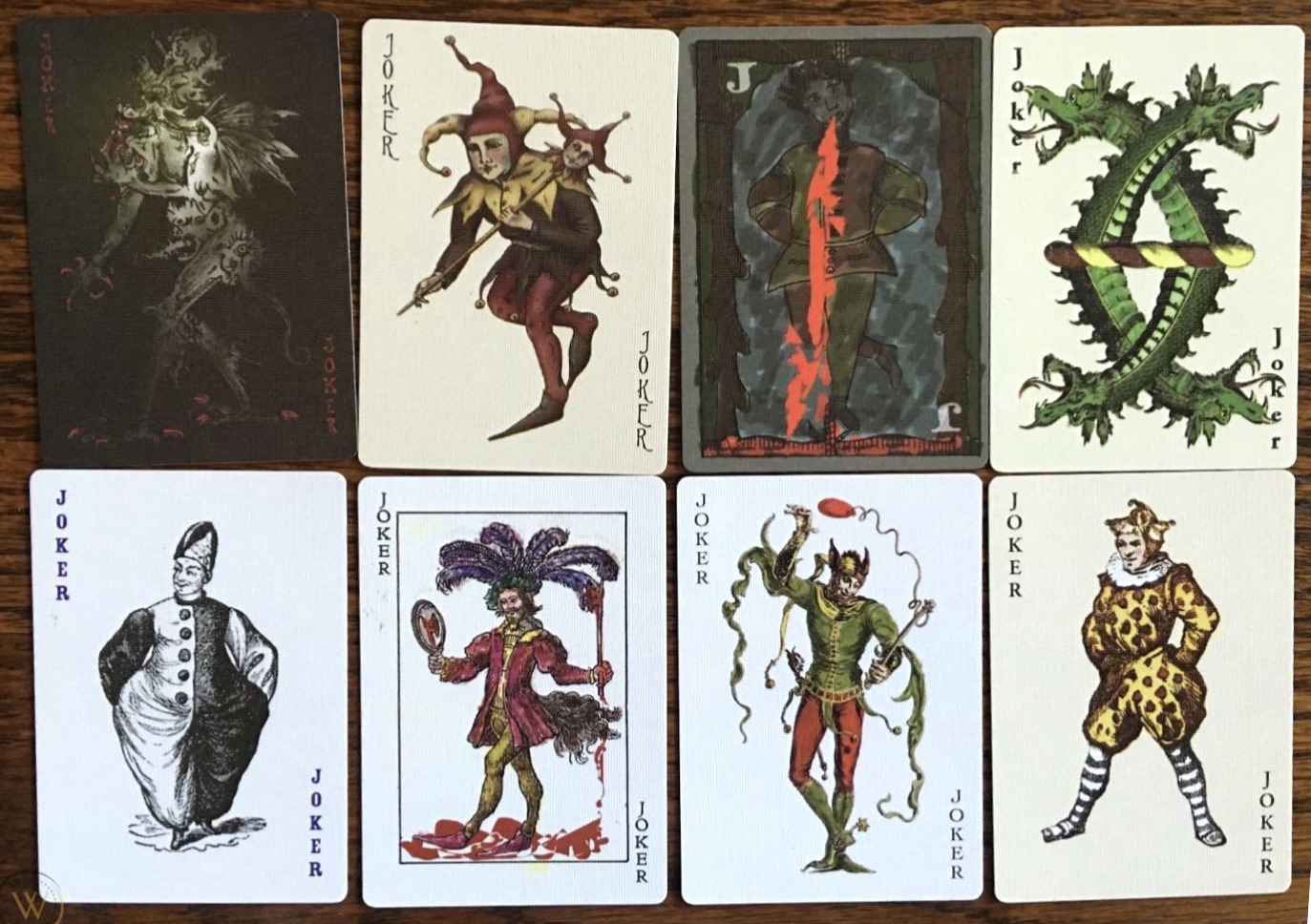 |
| + |
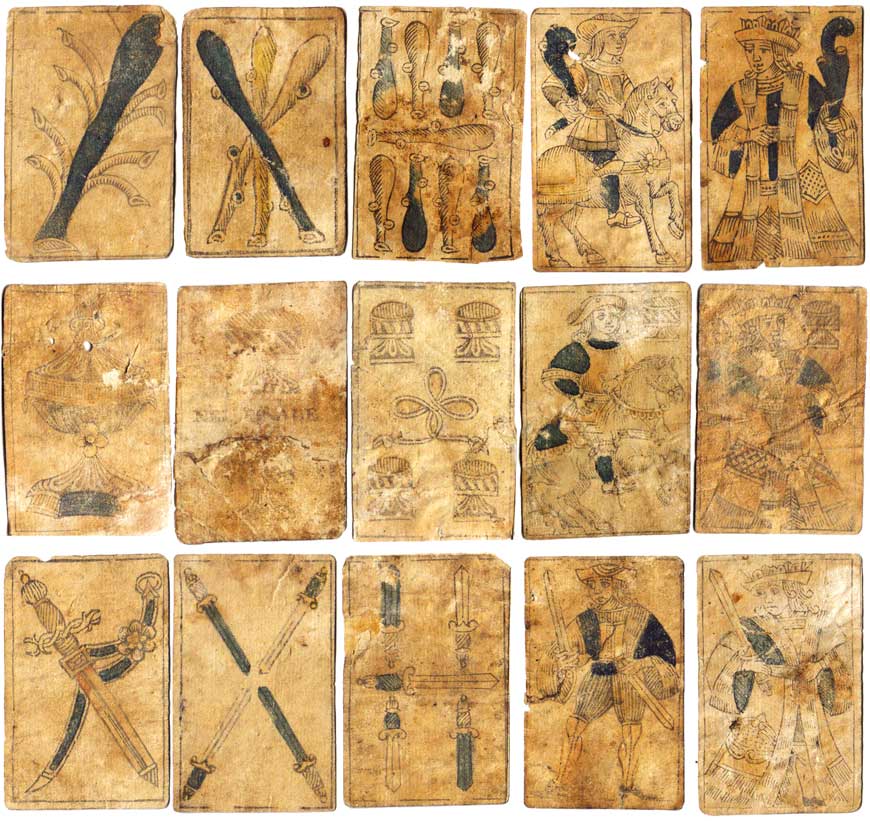
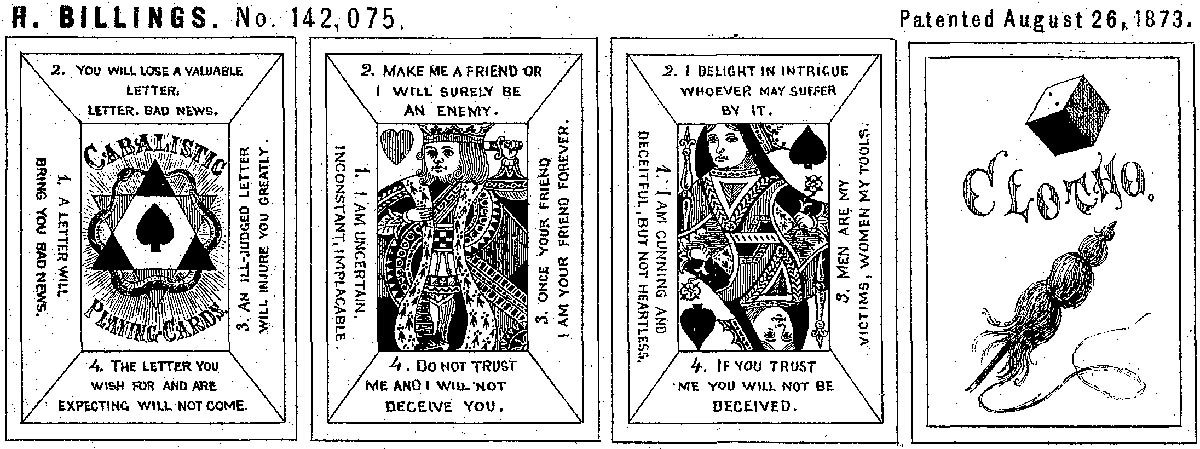 |
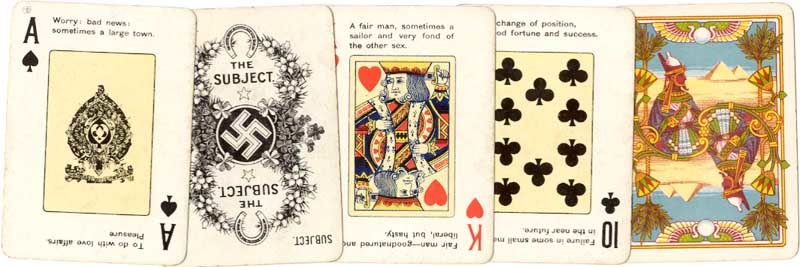 |
| Cabalistic Playing Cards, 1873 | The Rameses Fortune Telling Cards, manufactured by Chas. Goodall & Son Ltd, Camden Works, London, c.1910. 52 cards + extra 'Subject' card in box. |
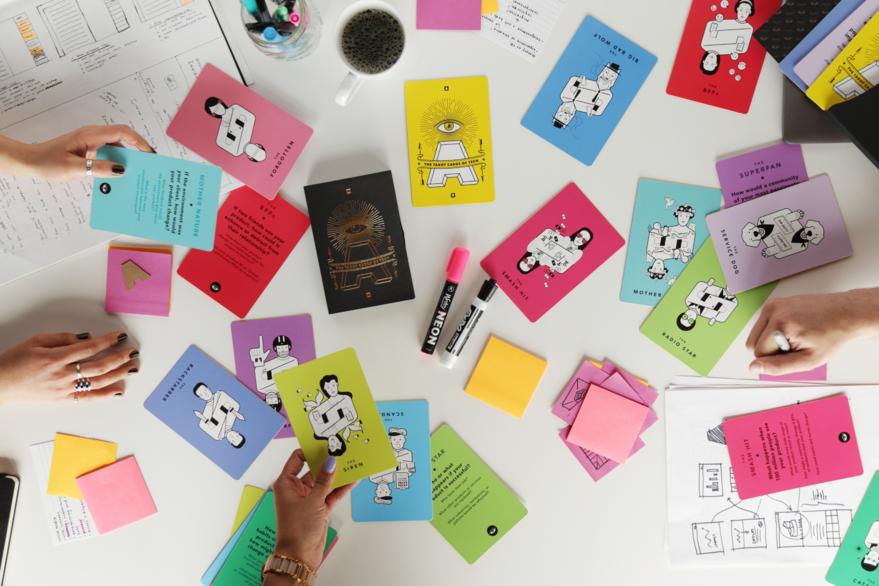 |
| The Tarot Cards of Tech |
Tarot (and variations)
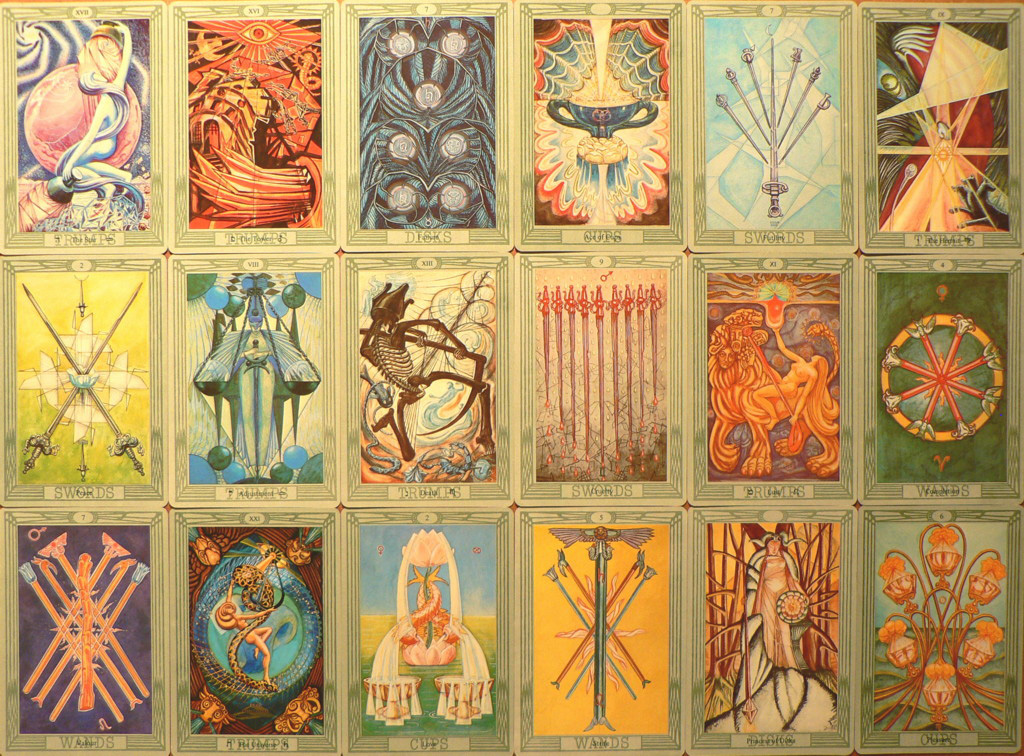
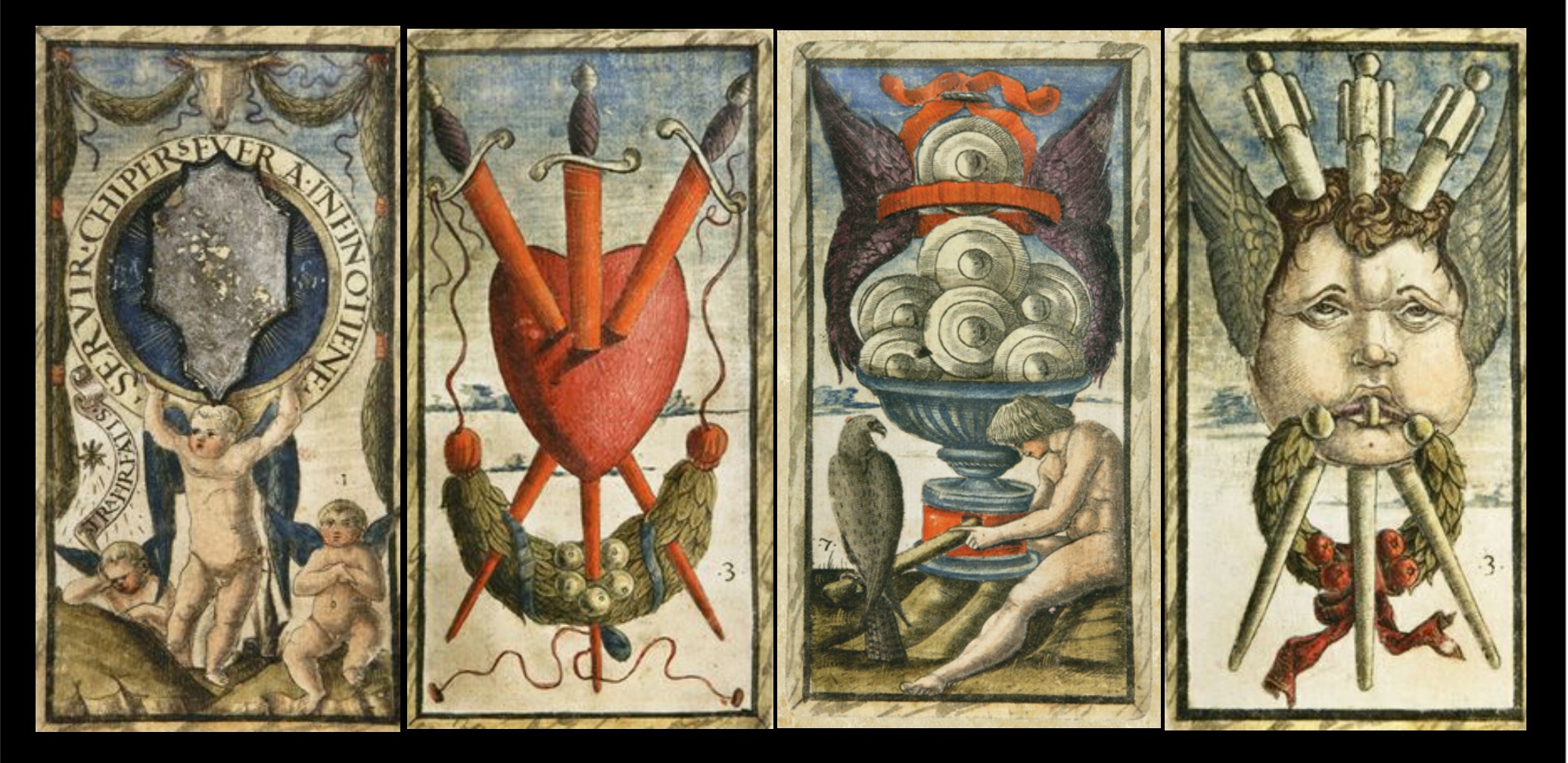
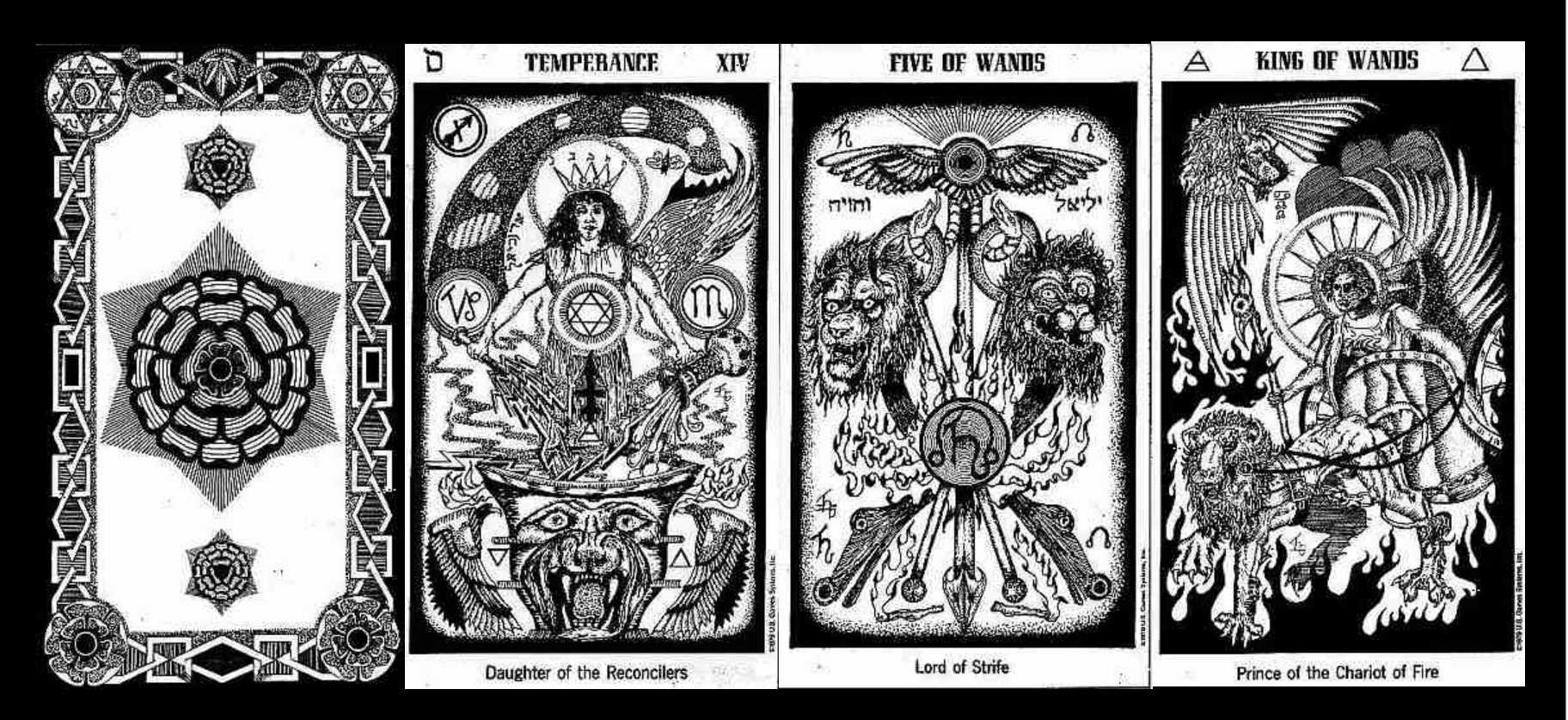
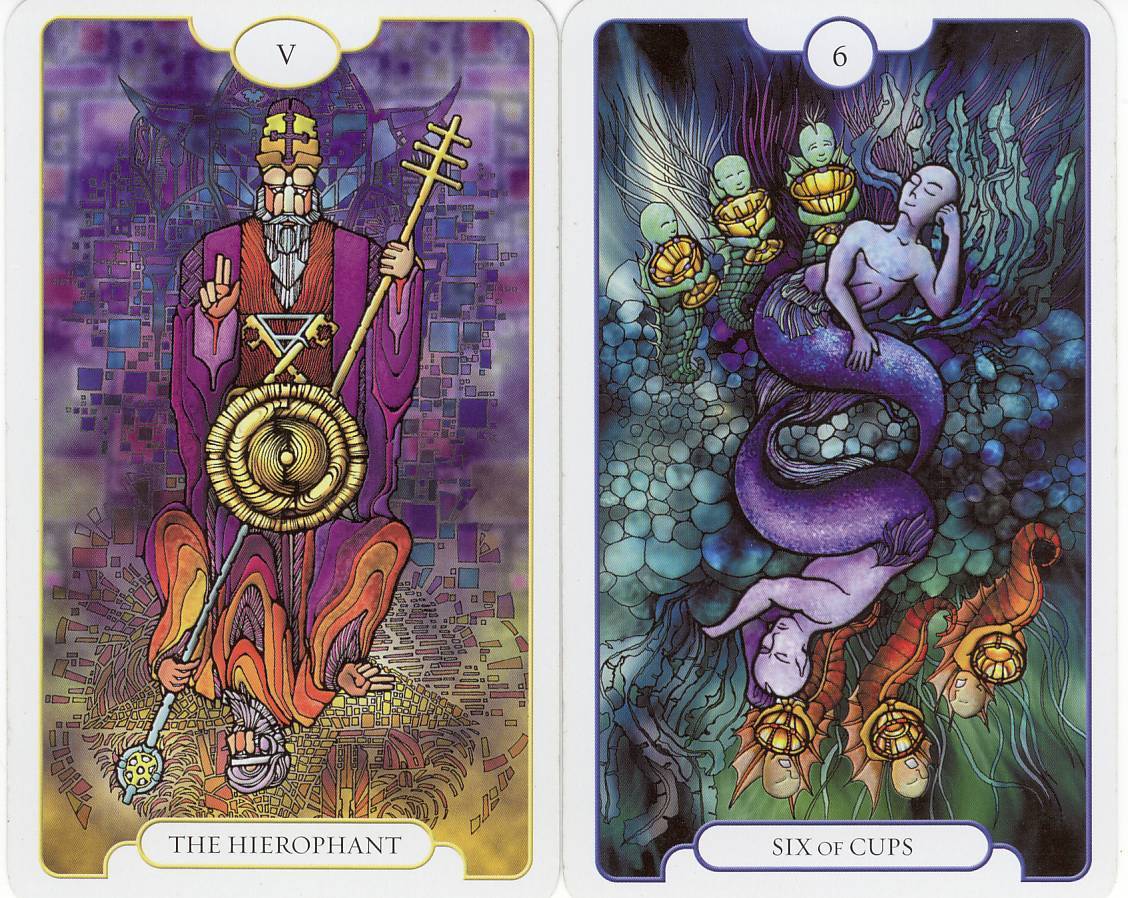
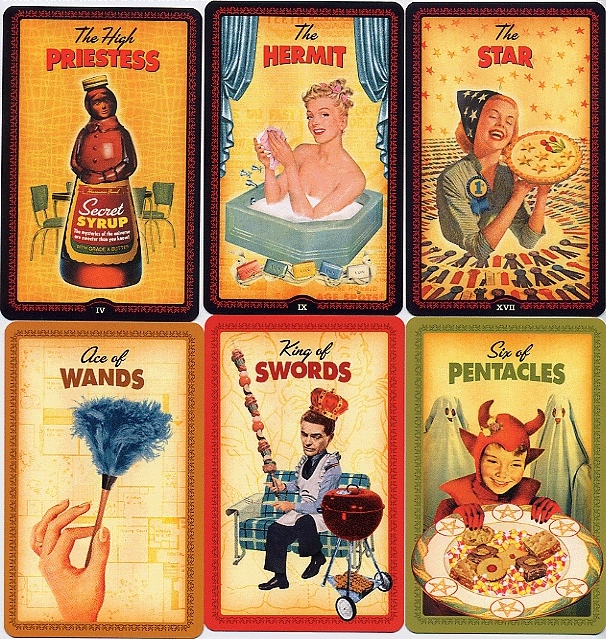 |
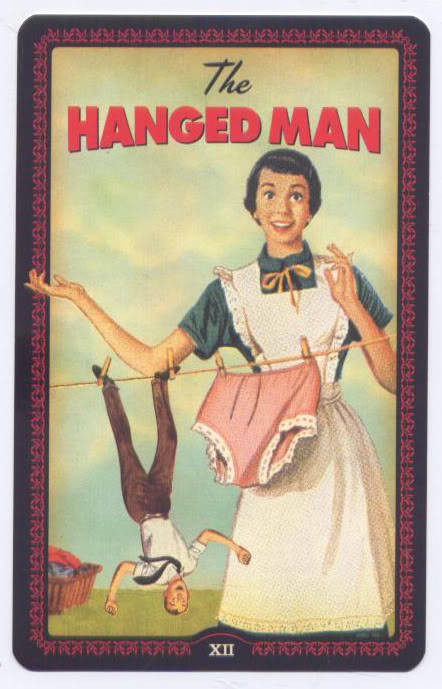 |
| 3 |
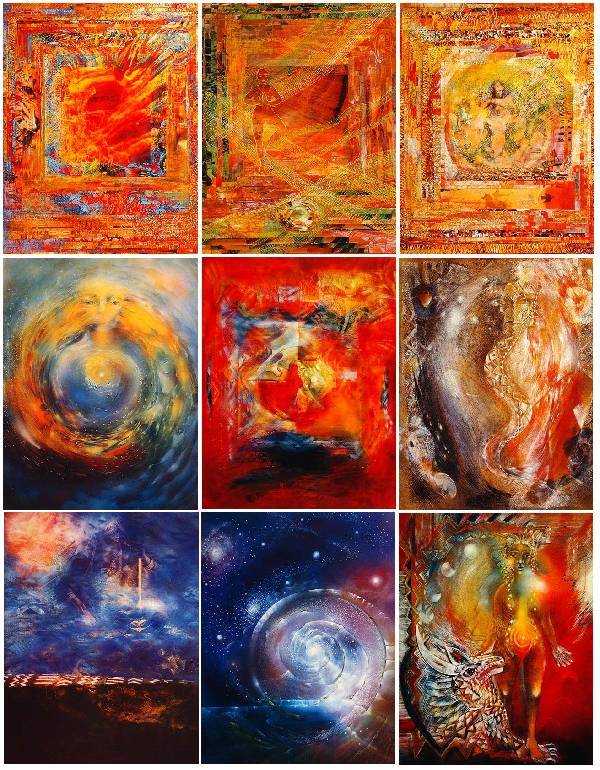
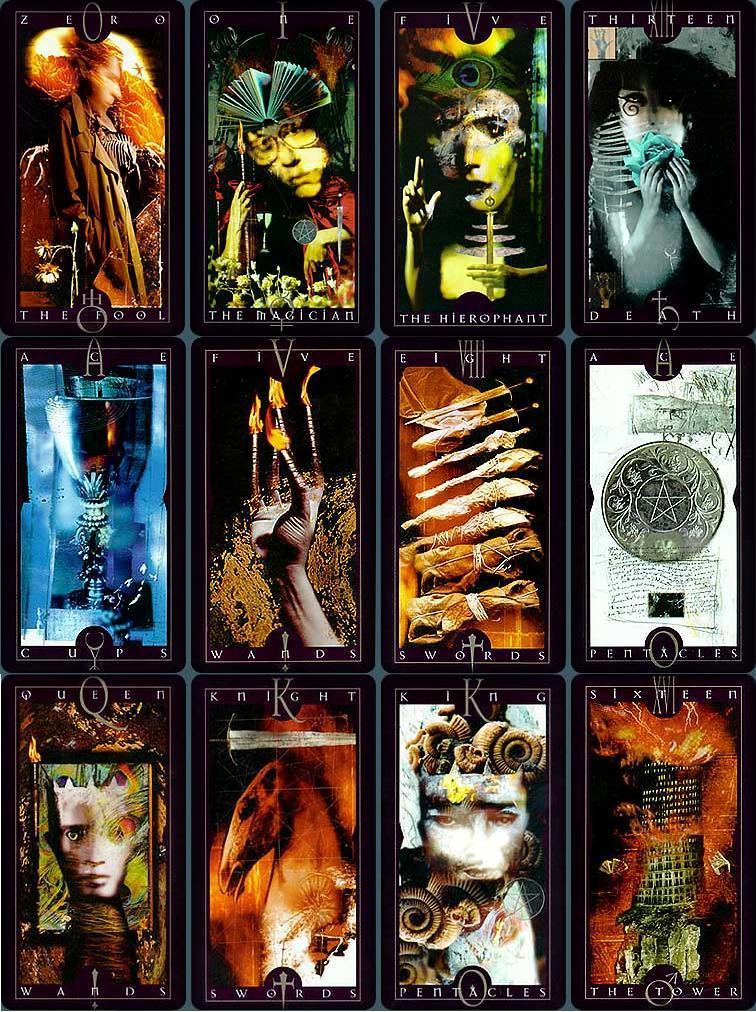

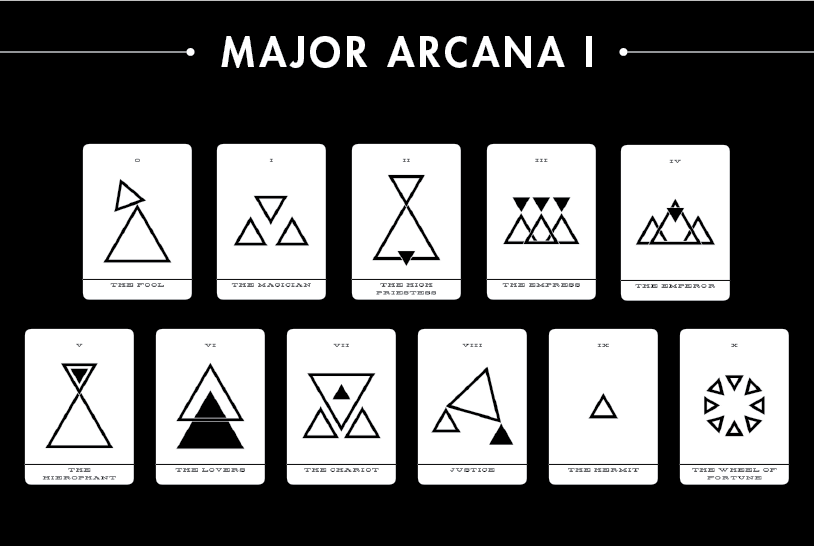
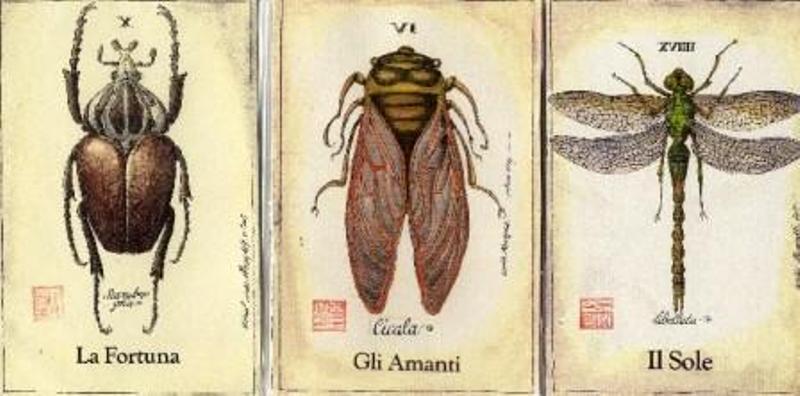
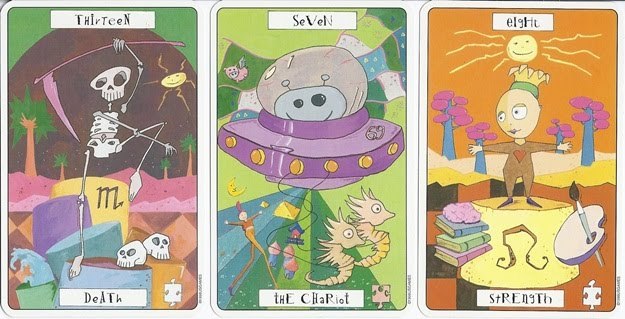
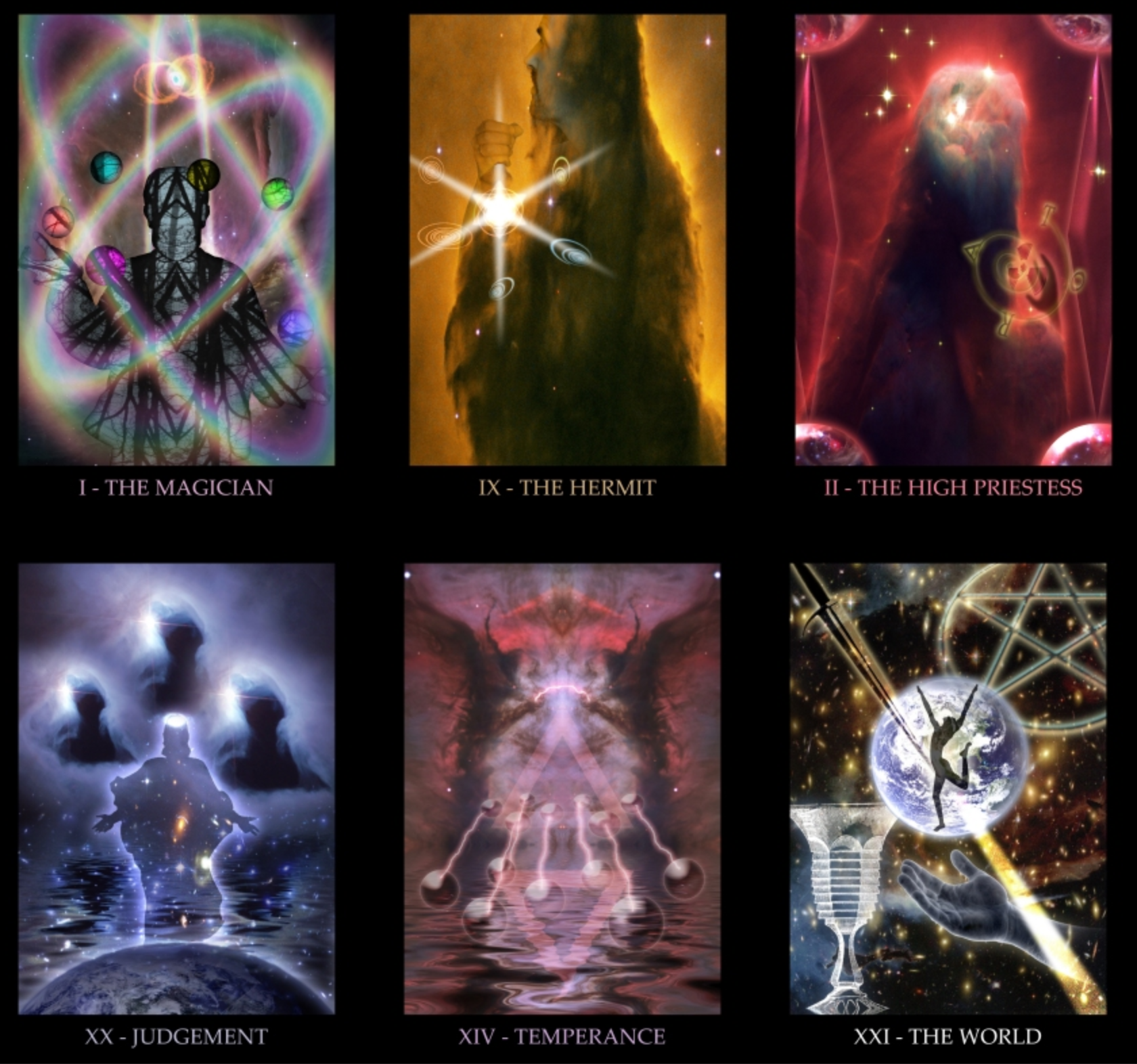
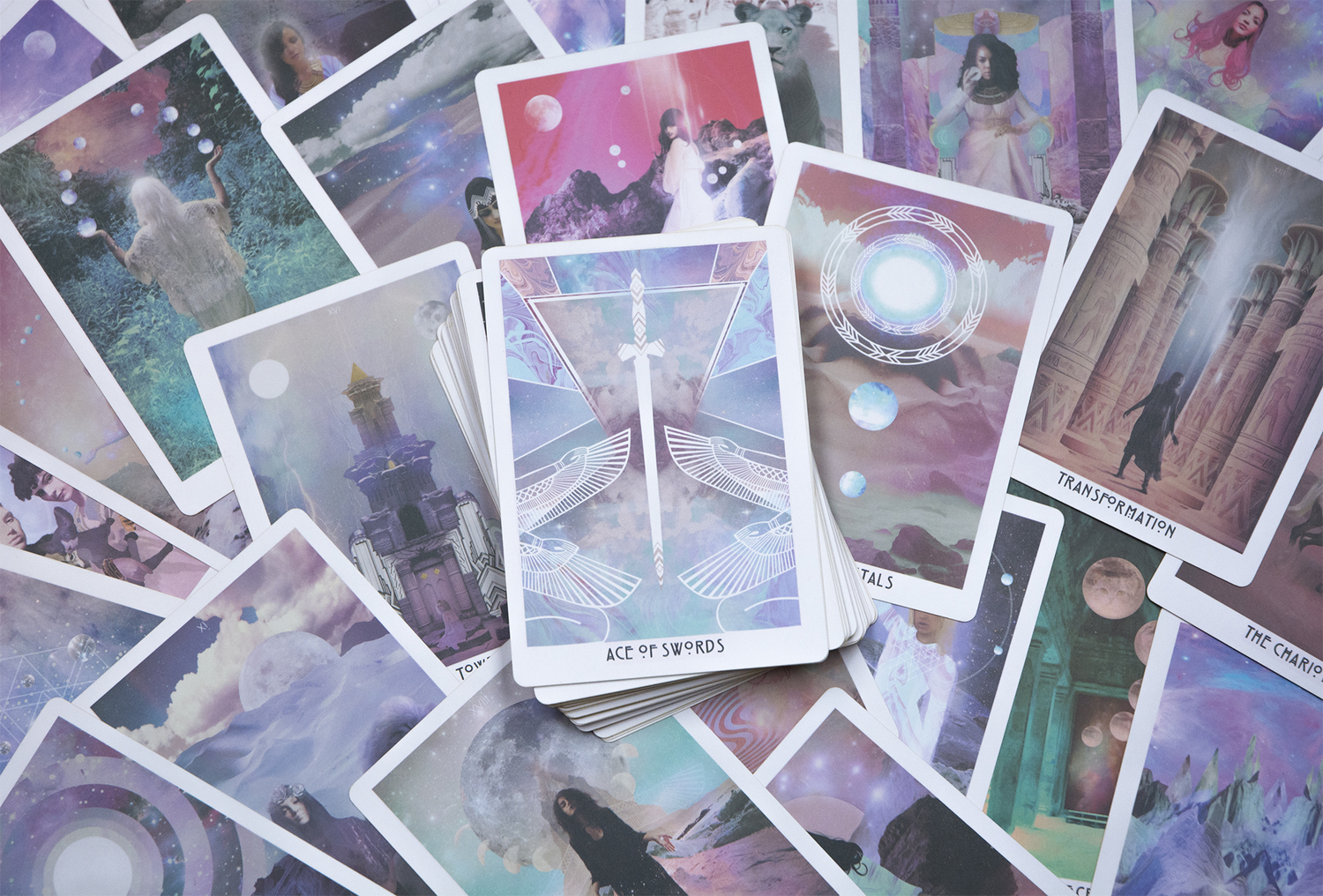
 |
| Dali Tarot - Taschen |
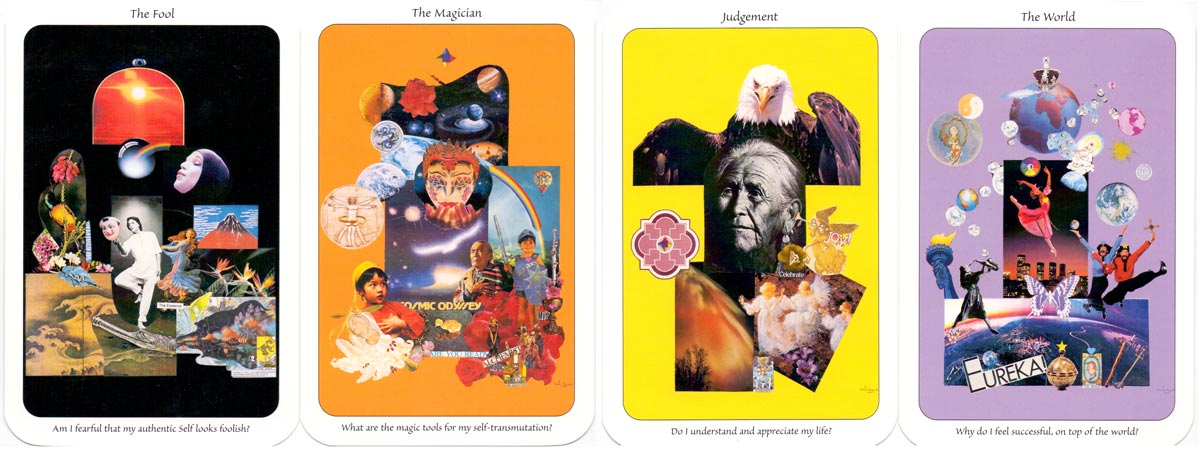
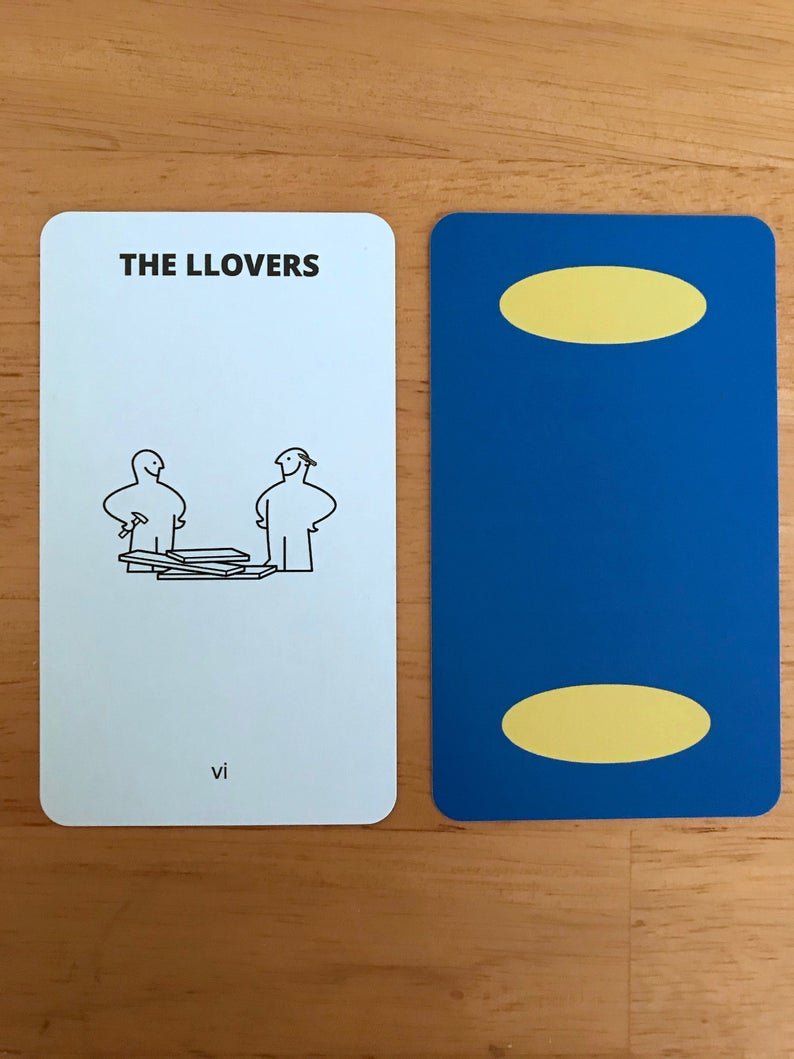 |
 |
| VI | 5 |
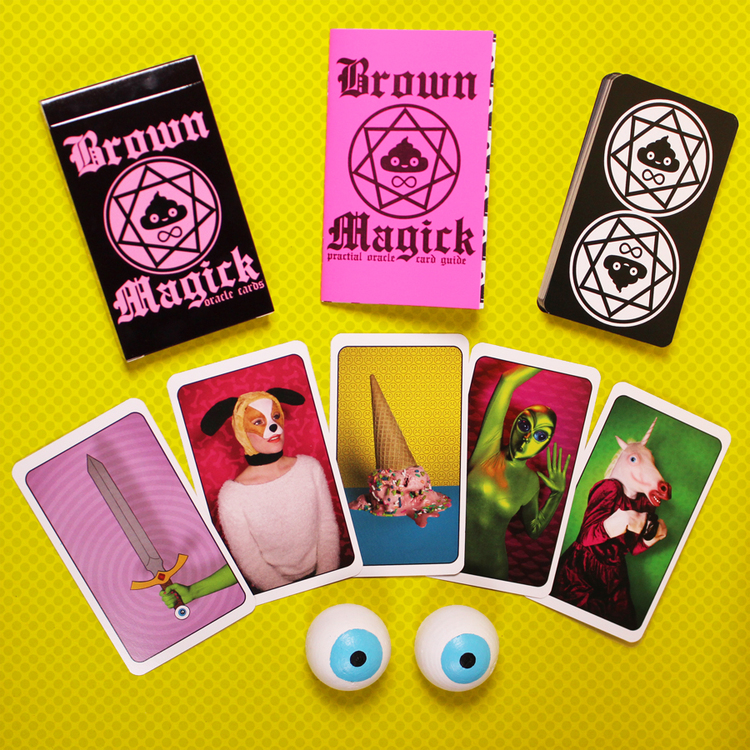
How the Mysterious ‘Brown Magick’ Oracle Card Deck Came to Be
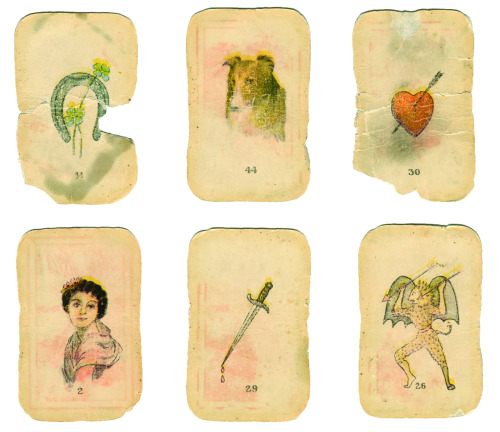
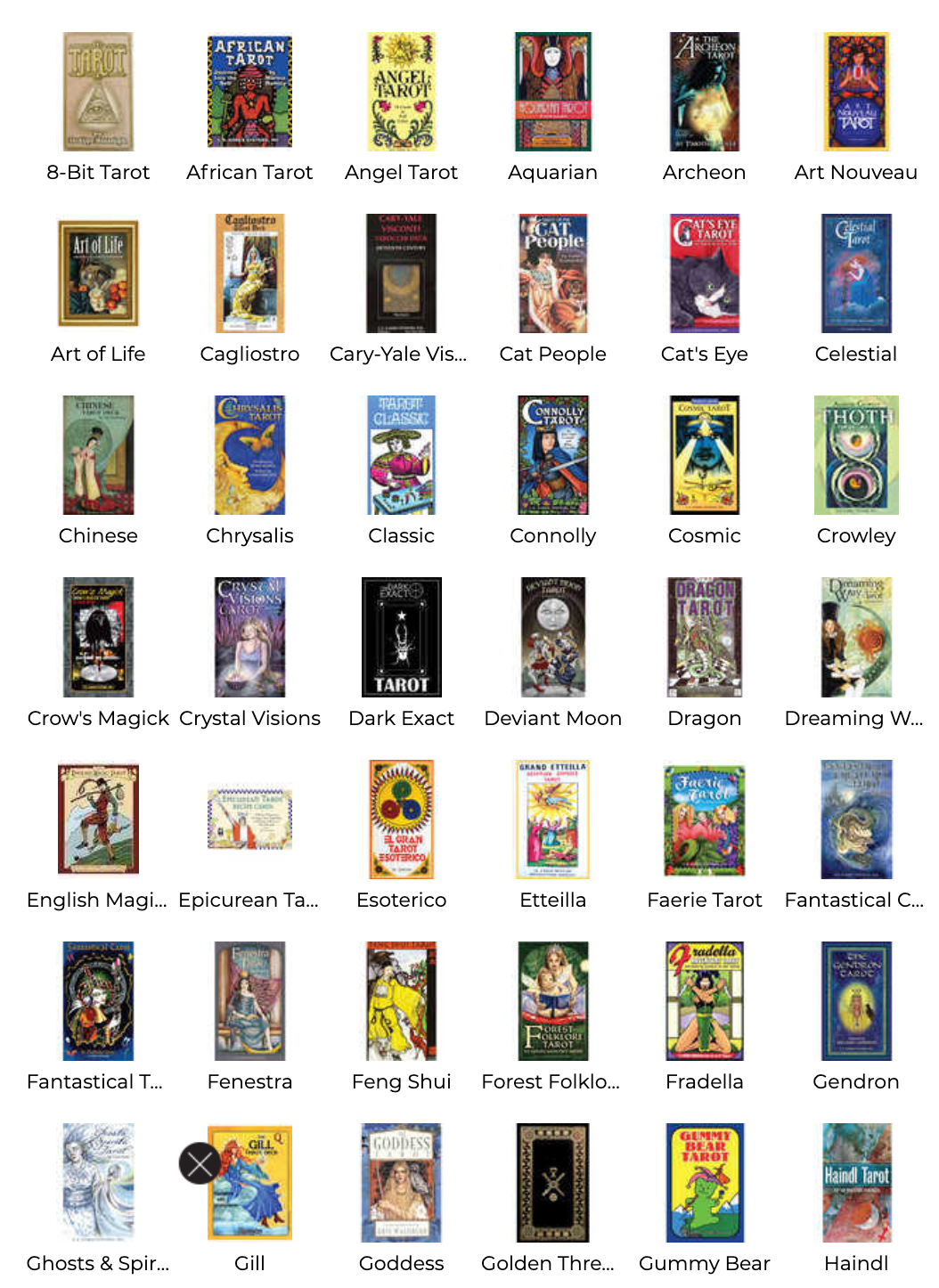 and so on, and so on…
and so on, and so on…
Design (thinking), Futures & Method cards
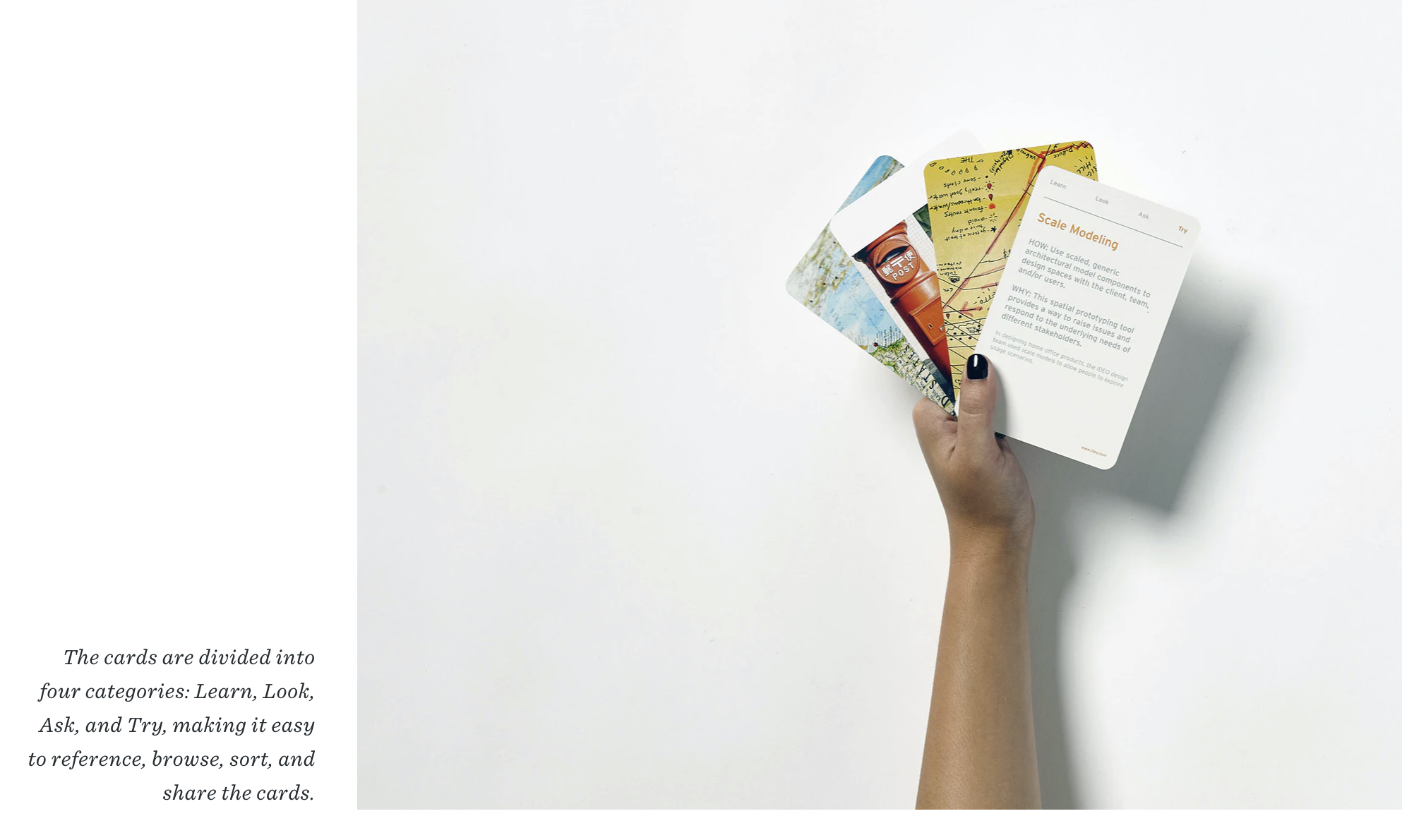 |
 |
| IDEO |
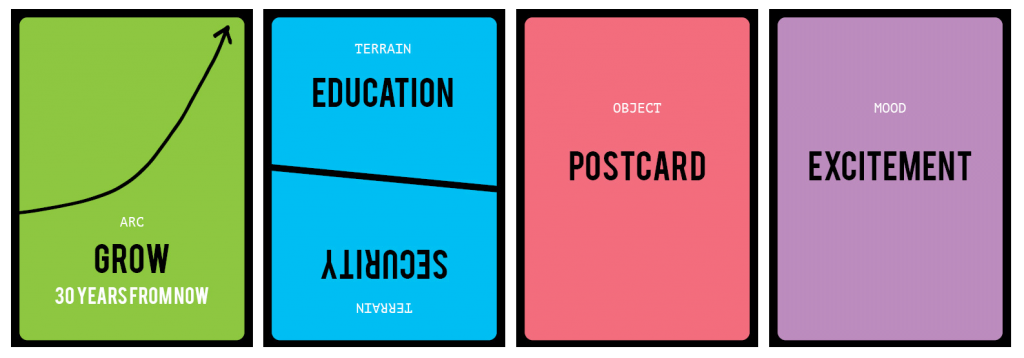 |
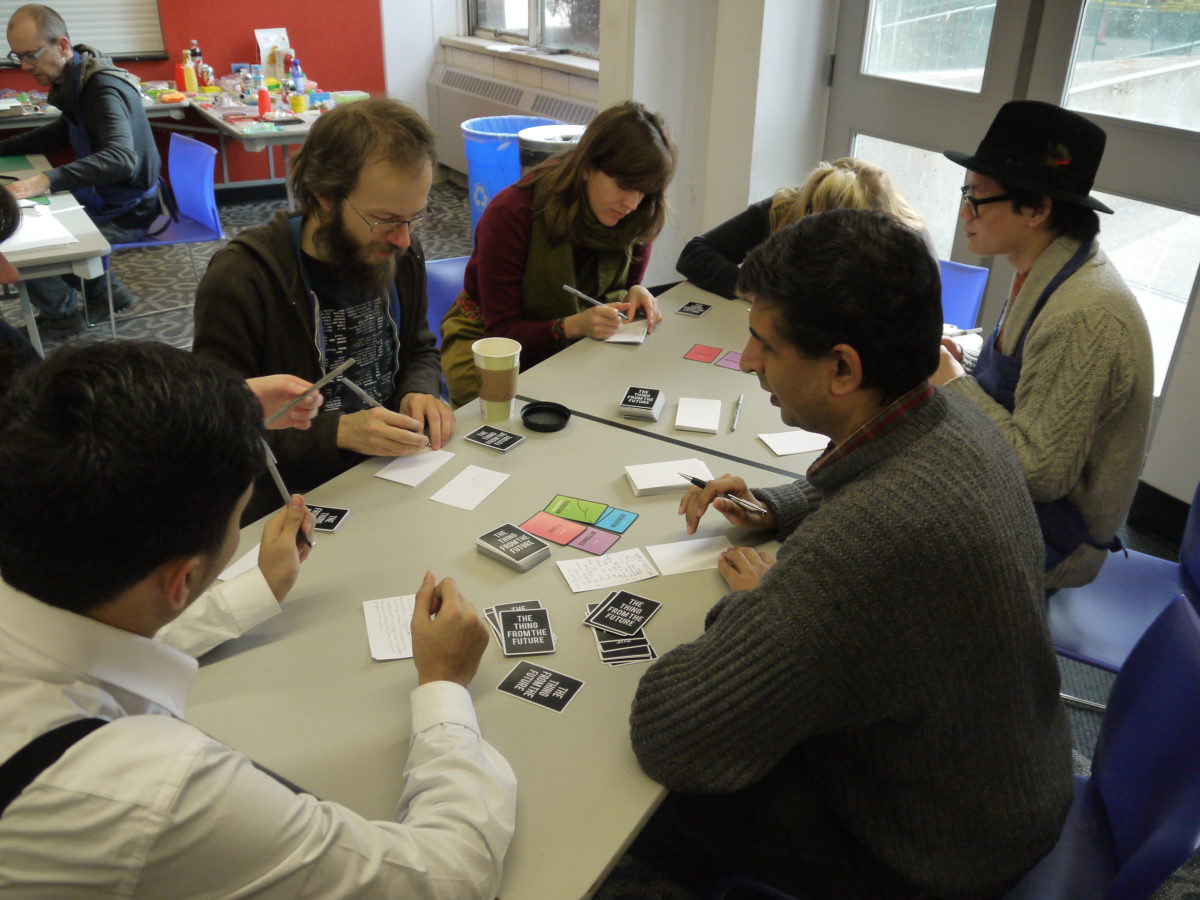 |
| Playing “The Thing from the Future” |
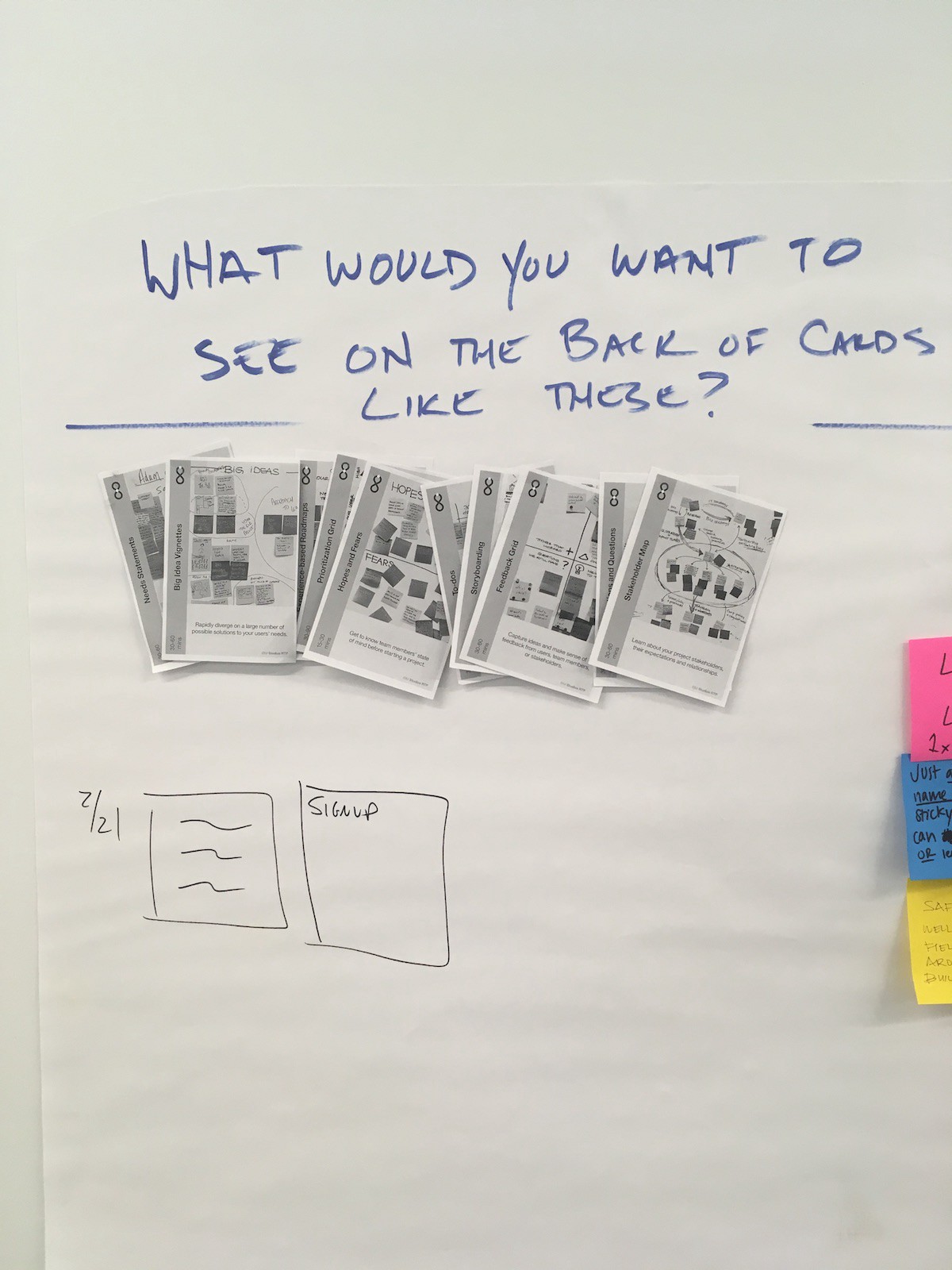
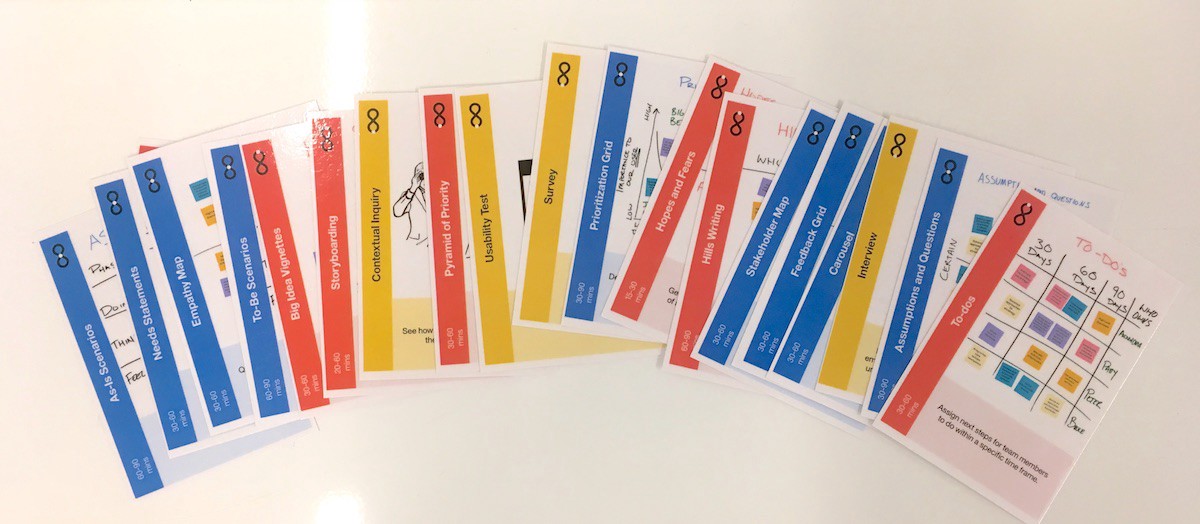
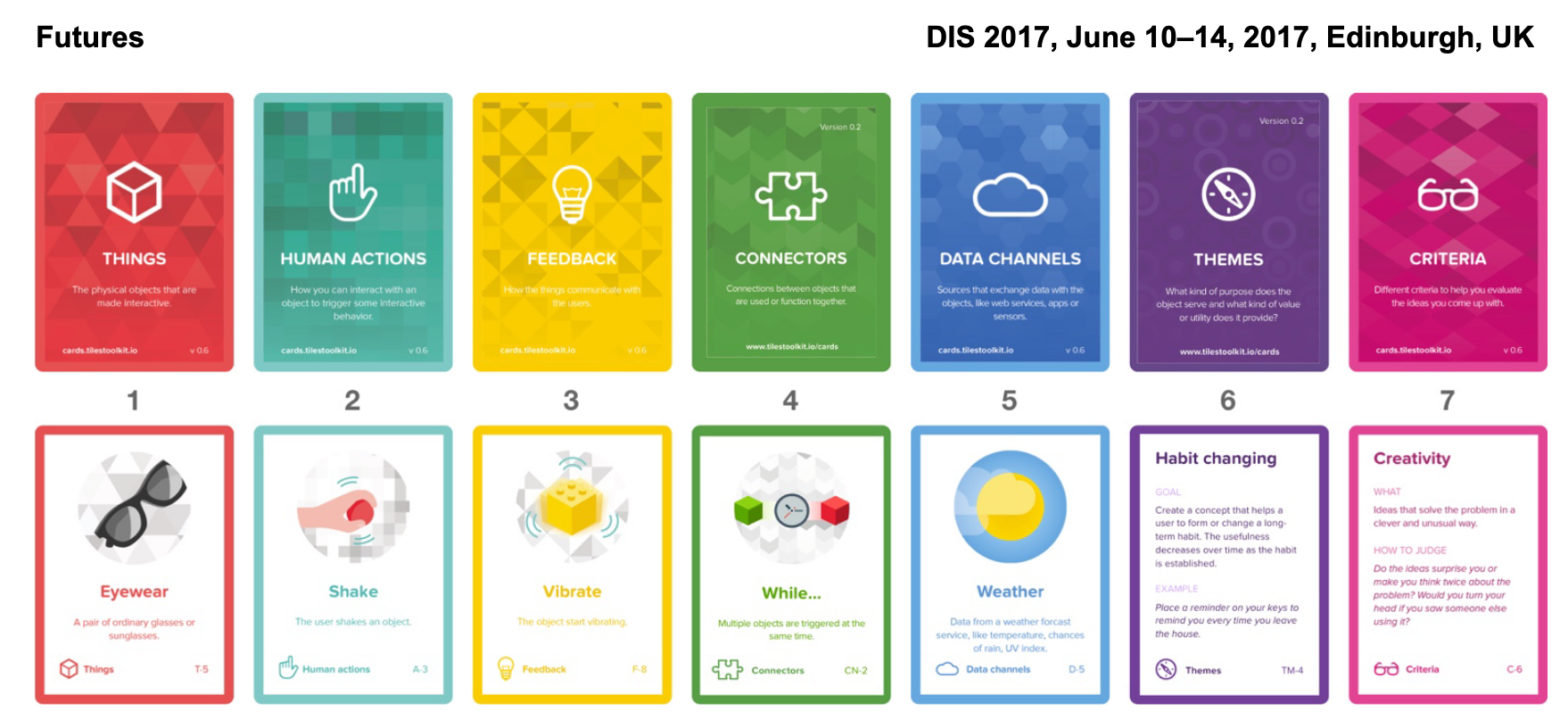
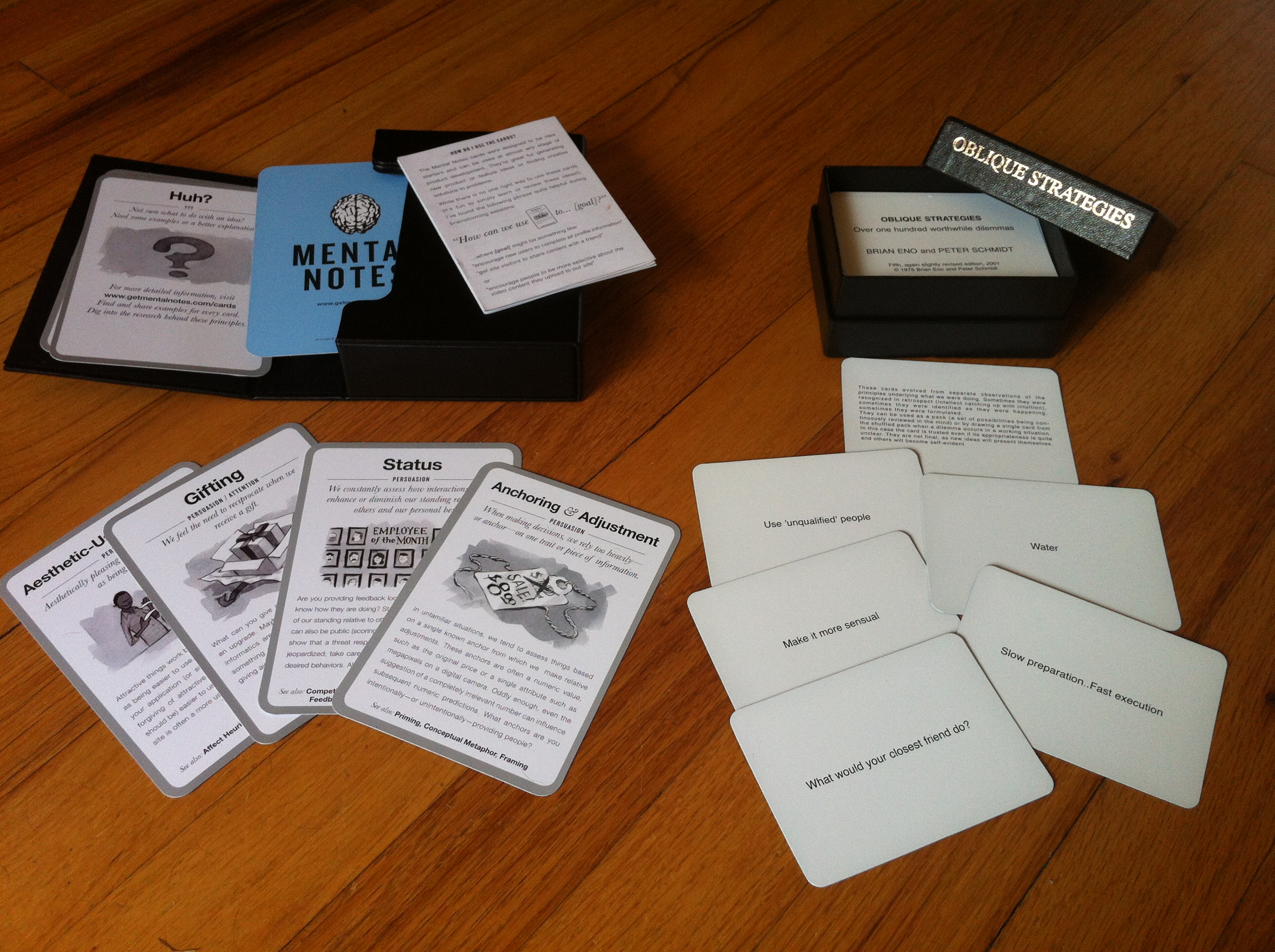
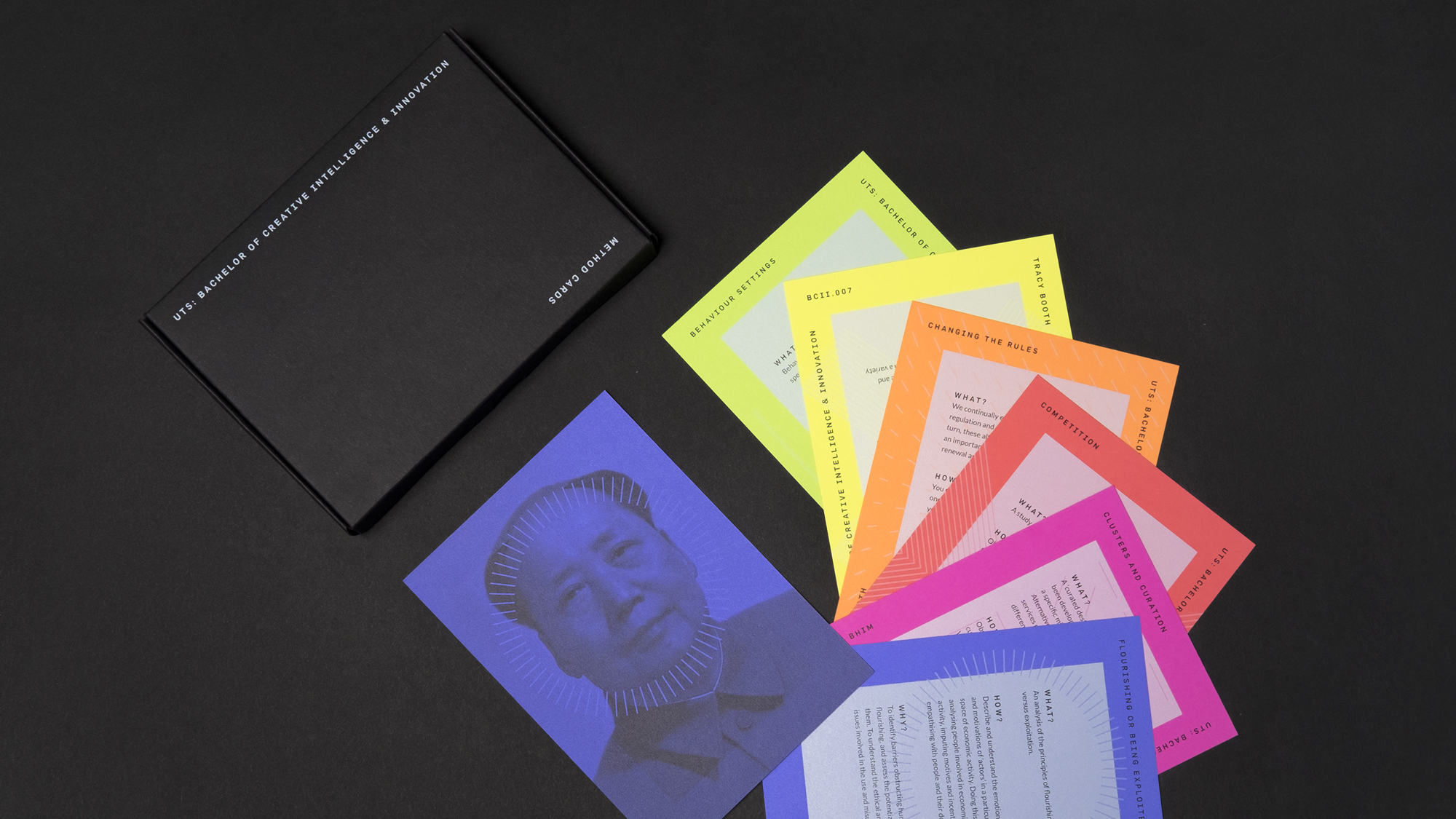 |
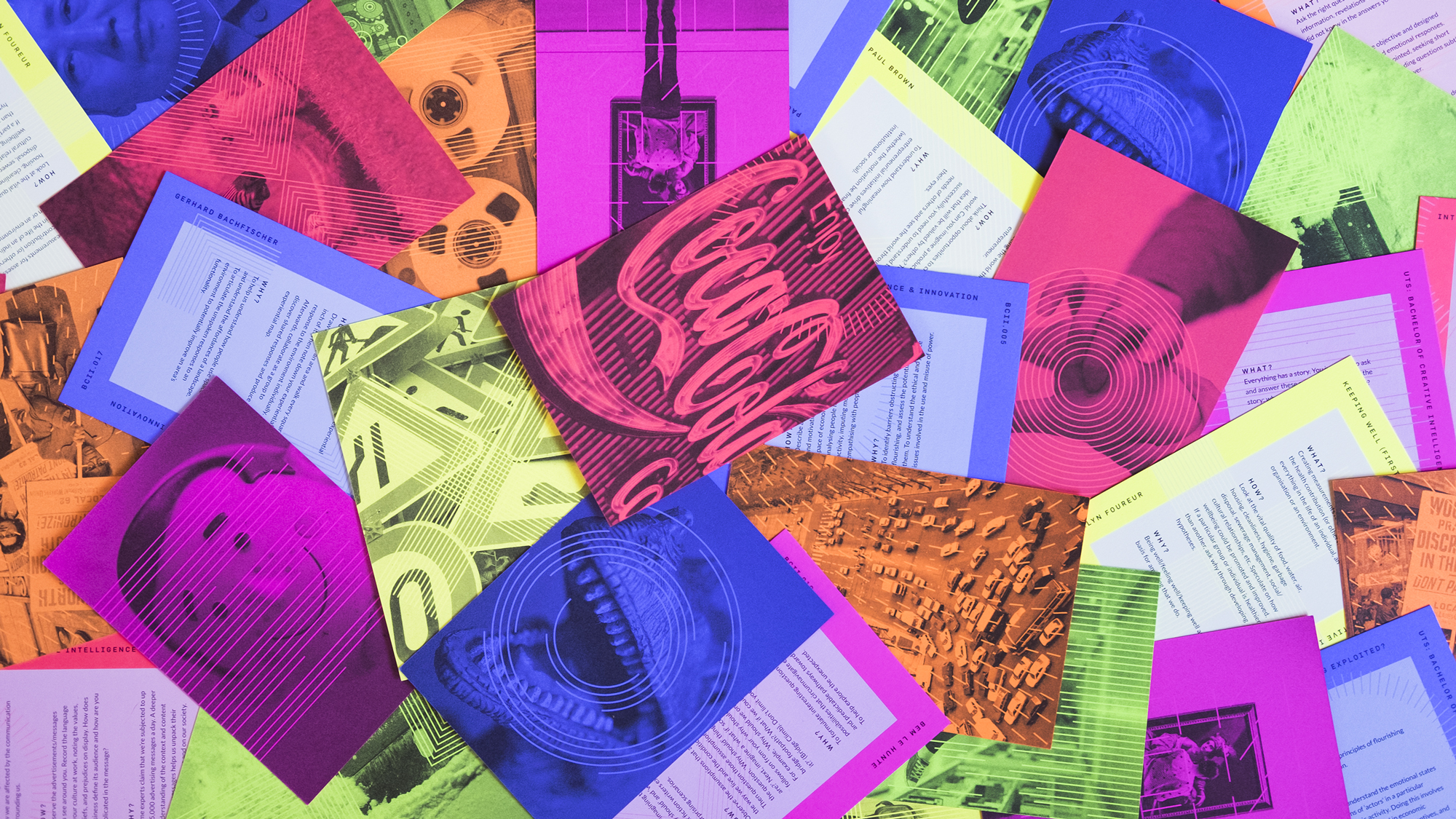 |
| A suite of workshop method cards to support the learning model of the new Bachelor of Creative Intelligence and Innovation degree at UTS (UTS Method cards) |
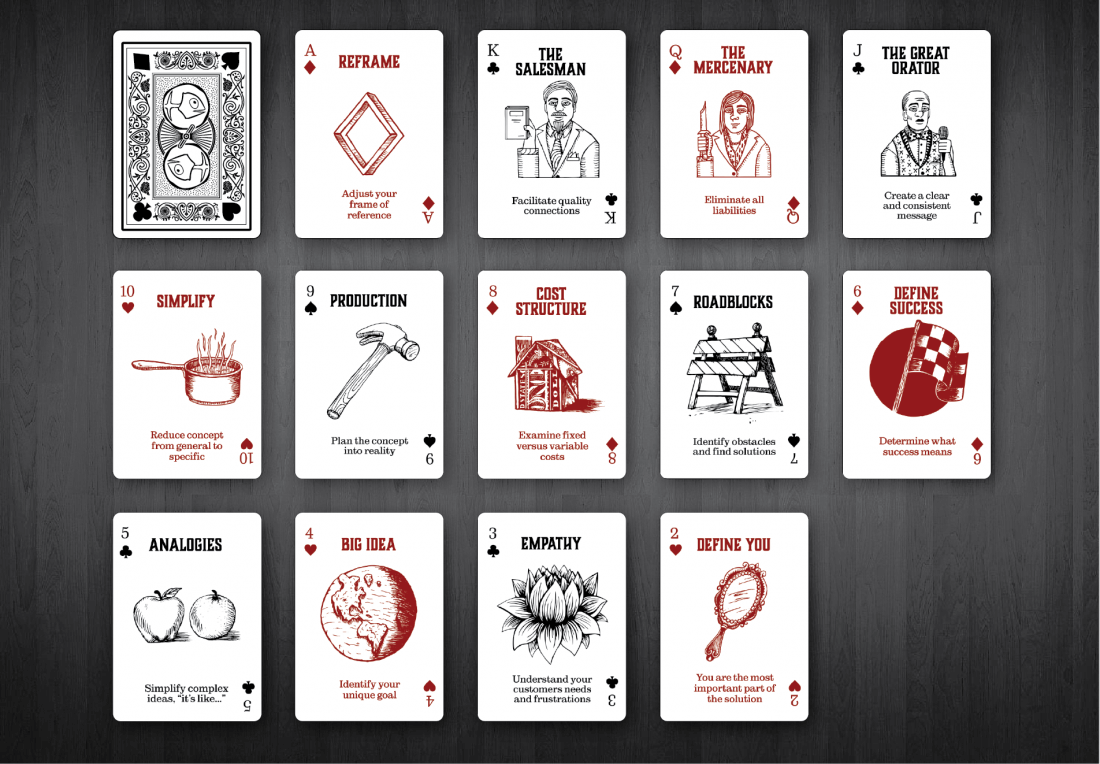
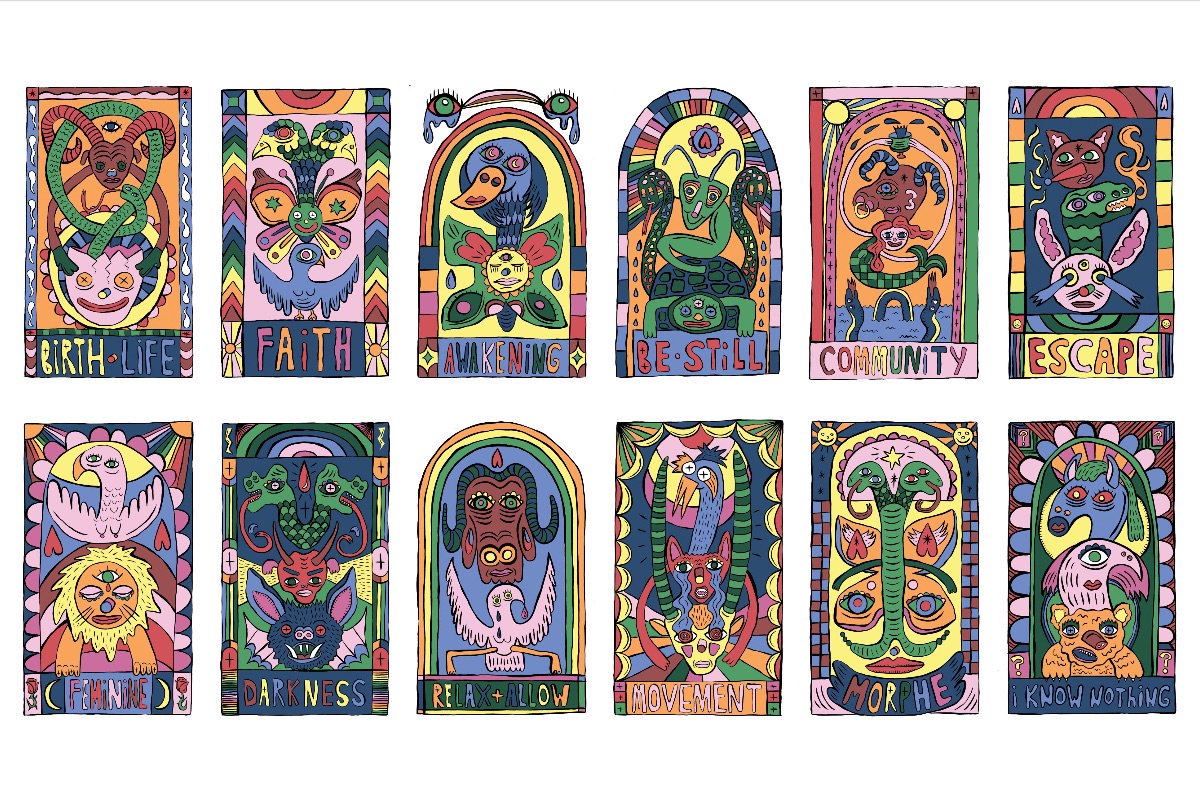
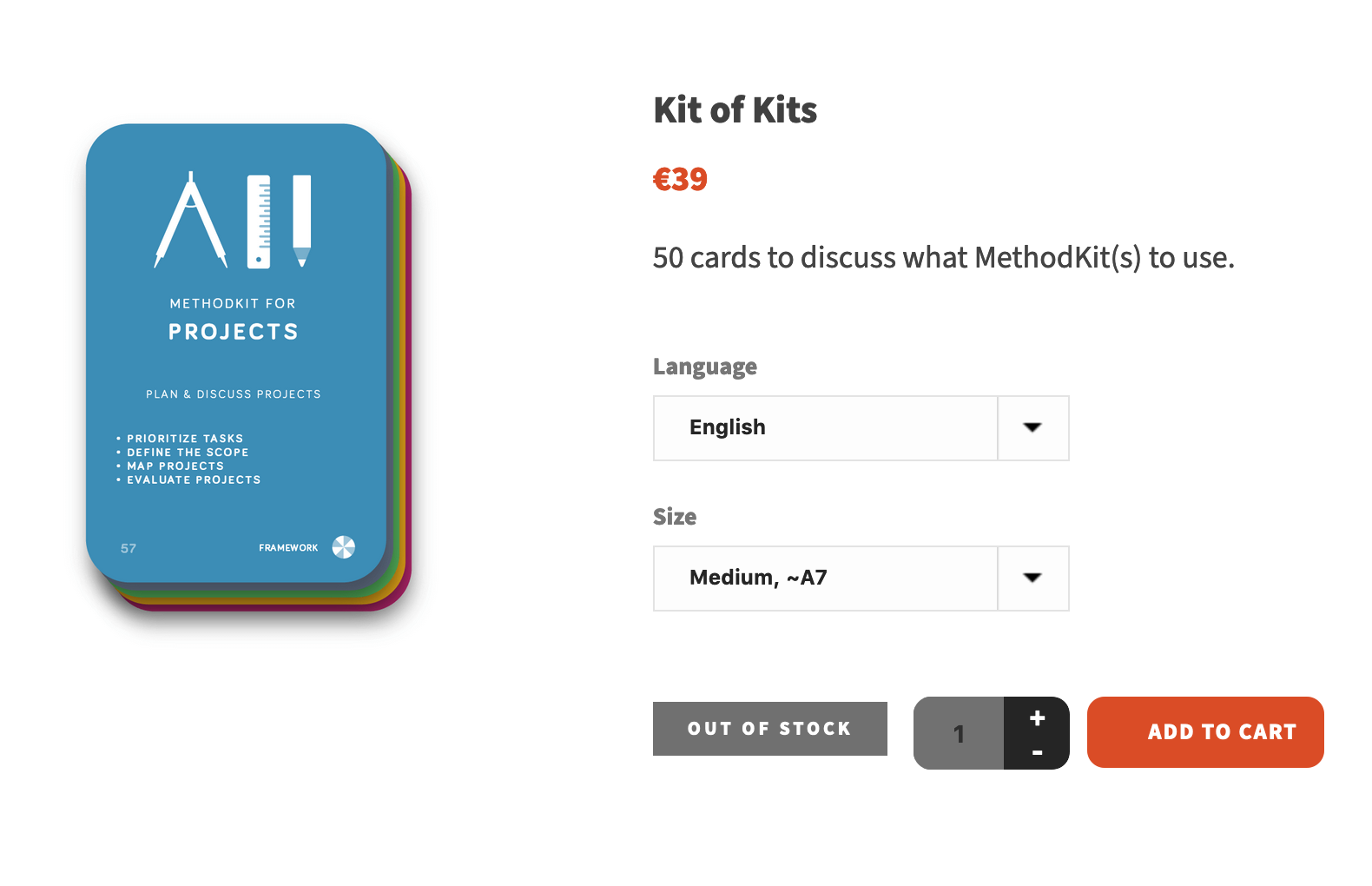
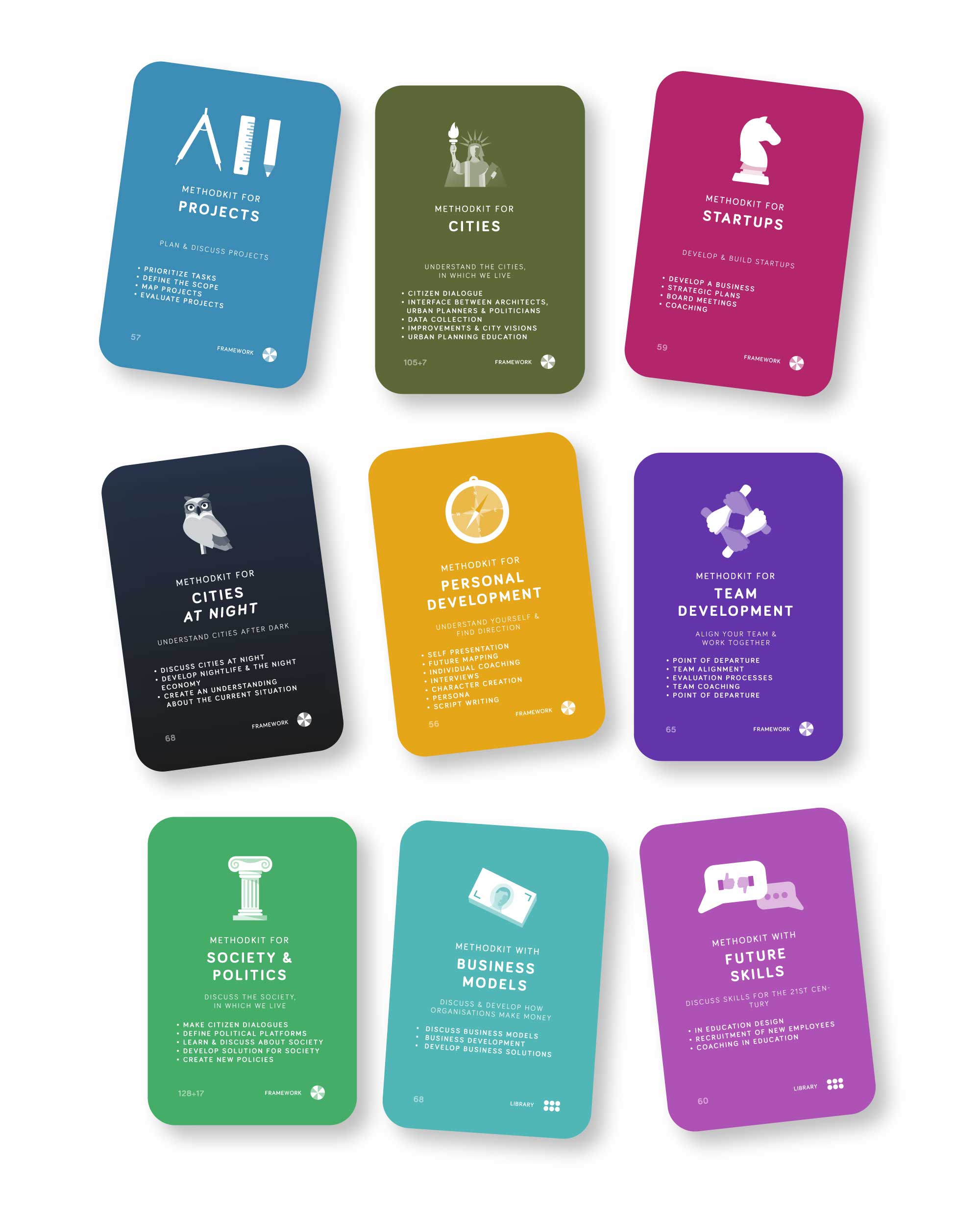
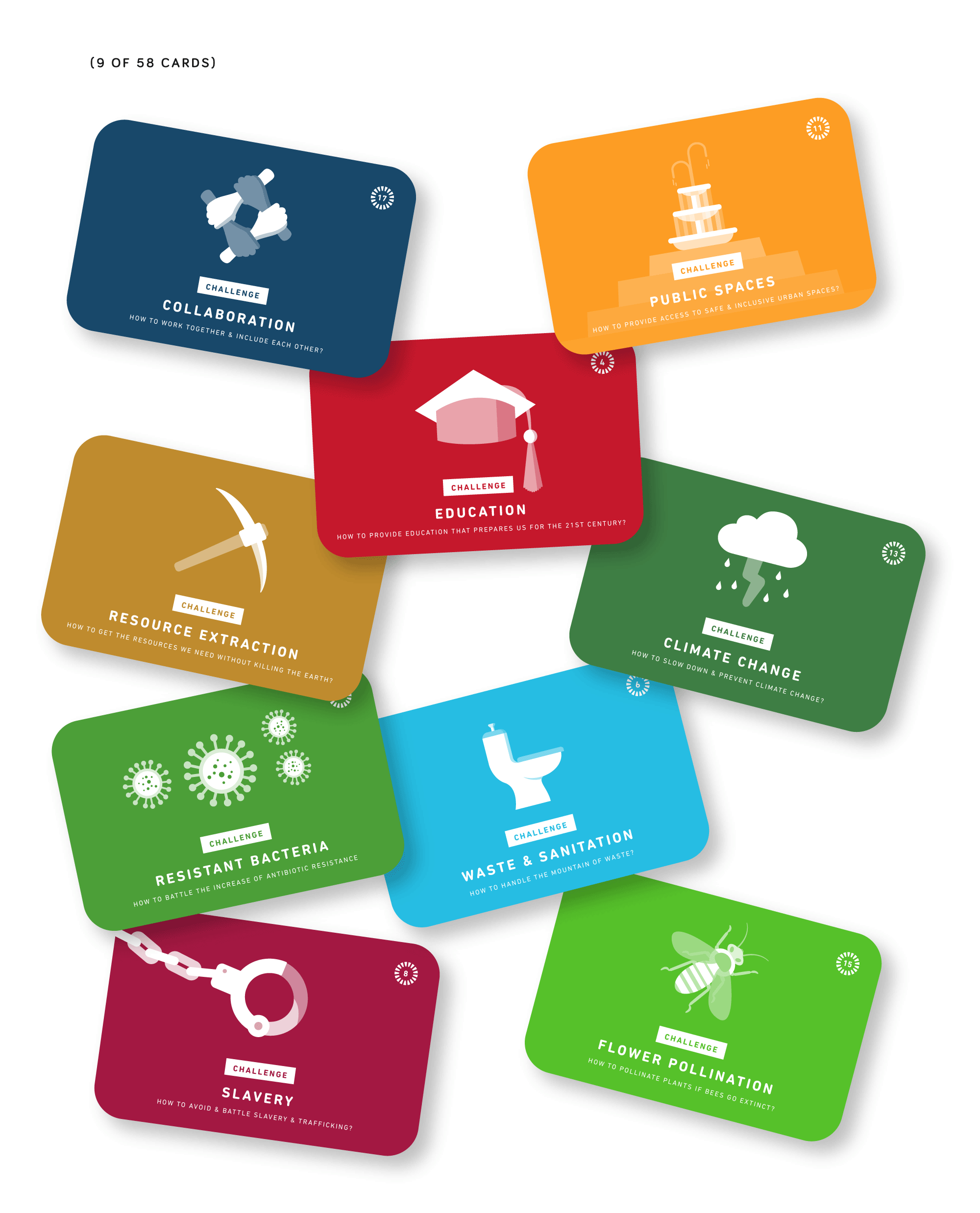
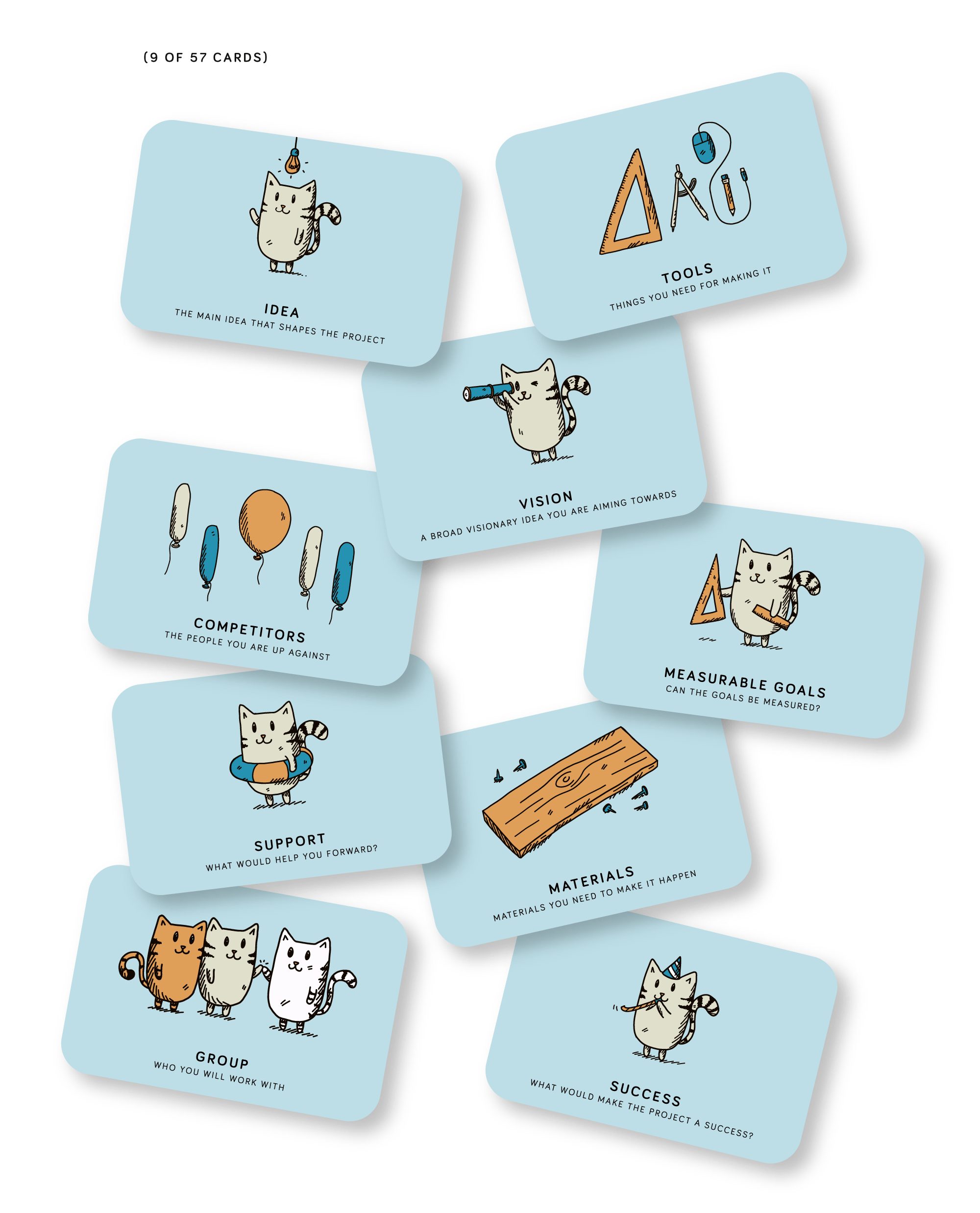
Fluxx
The Card Game With Ever-Changing Rules “It starts out simple: draw one card and play one card – but New Rule cards quickly make things chaotic. Even the object of the game will often change as you play, as players swap out one Goal card for another. Can you achieve World Peace before someone changes the goal to Bread and Chocolate?”
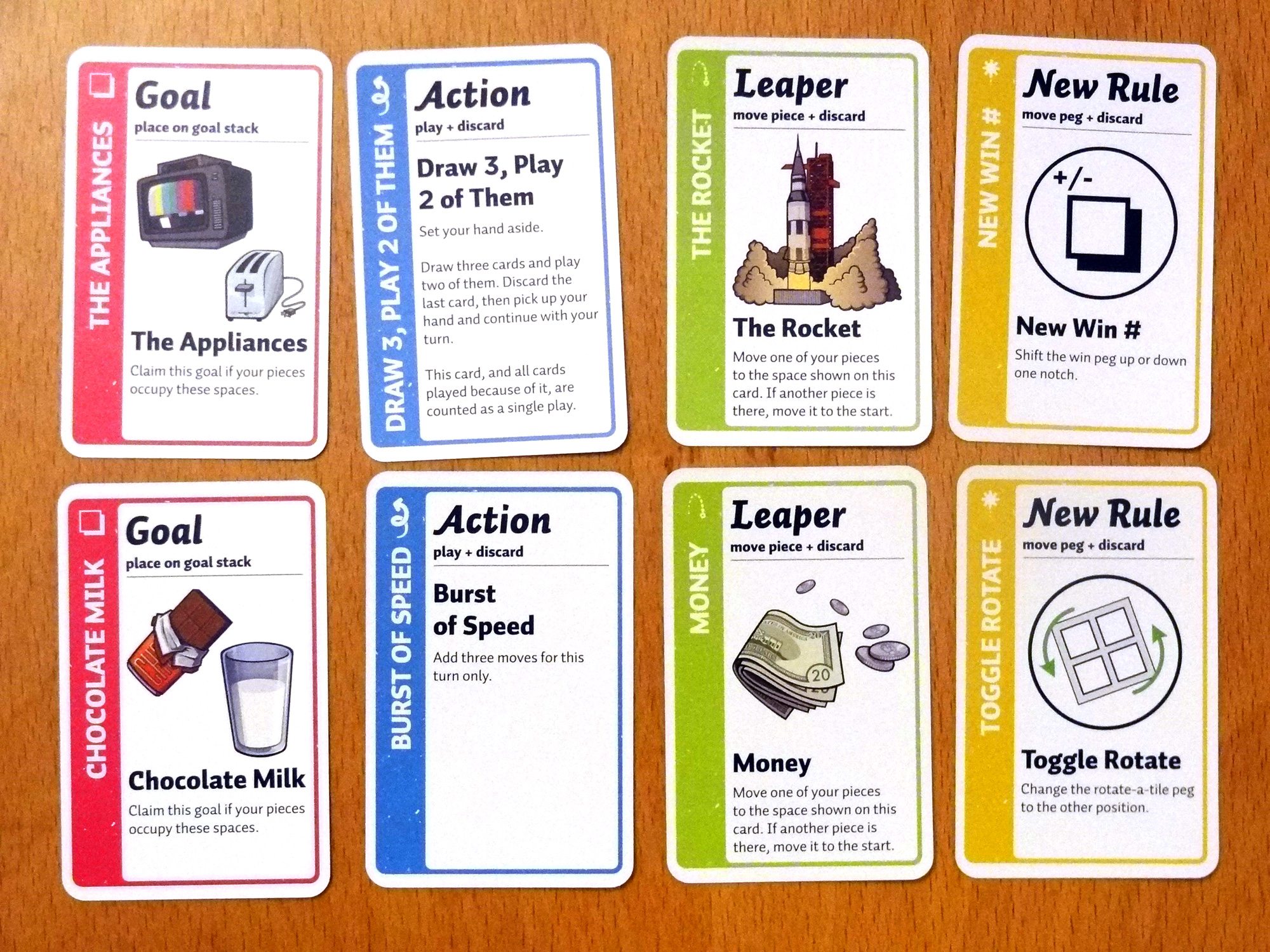
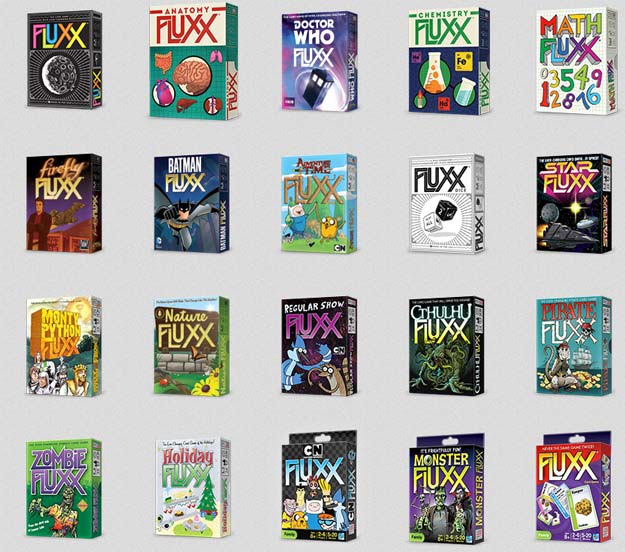
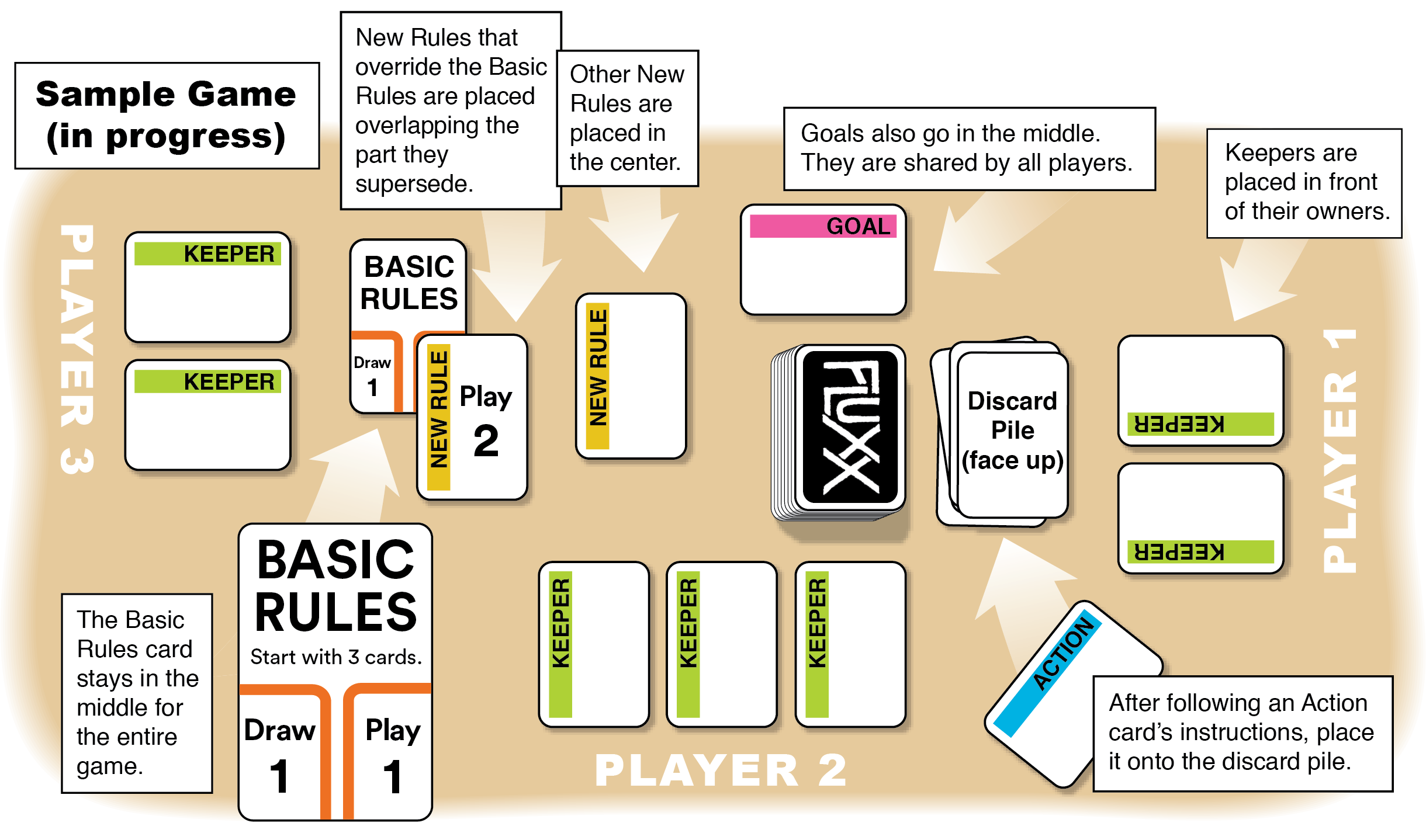
(see also the Looney Labs Literature Index (printable rules and rulesheets) and Chrononauts)
MTG
“Magic can be played by two or more players, either in person with printed cards or on a computer, smartphone or tablet with virtual cards through the Internet-based software Magic: The Gathering Online or other video games such as Magic: The Gathering Arena. It can be played in various rule formats, which fall into two categories: constructed and limited. Limited formats involve players building a deck spontaneously out of a pool of random cards with a minimum deck size of 40 cards; in constructed formats, players create decks from cards they own, usually with a minimum of 60 cards per deck. New cards are released on a regular basis through expansion sets.” Magic: The Gathering (Wikipedia)
Formats: MTG Arena, Tabletop Magic, Magic Online and Magic Pro League (digital and tabletop tournaments)

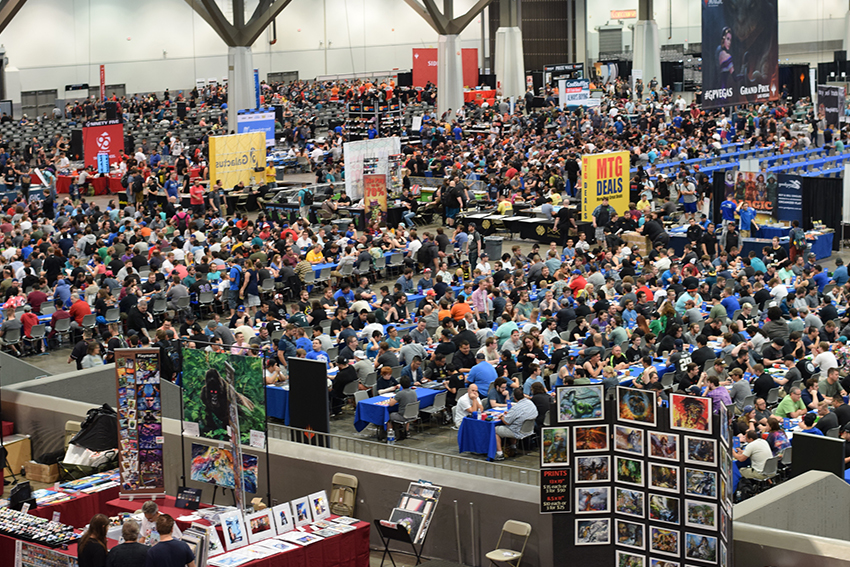
RPG cards
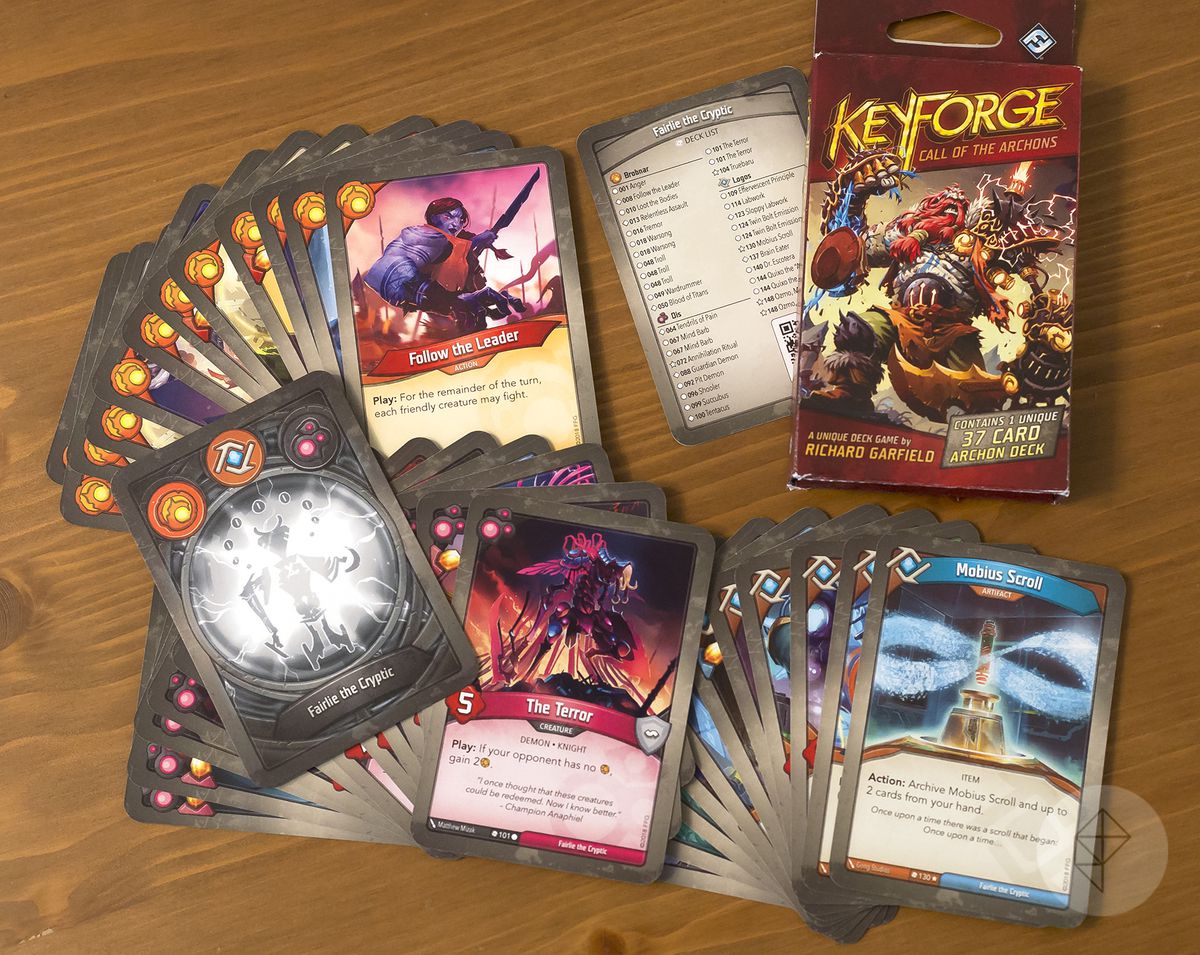
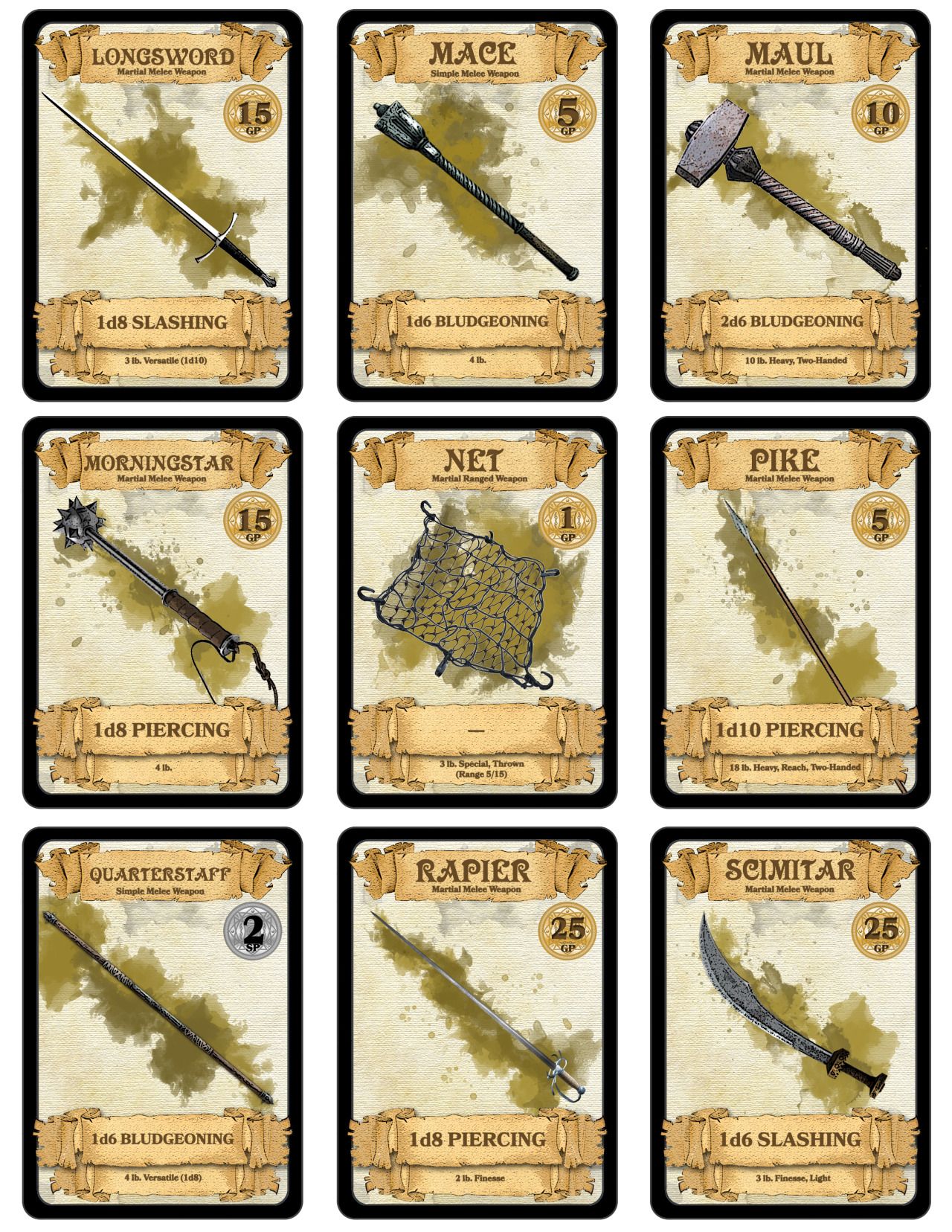

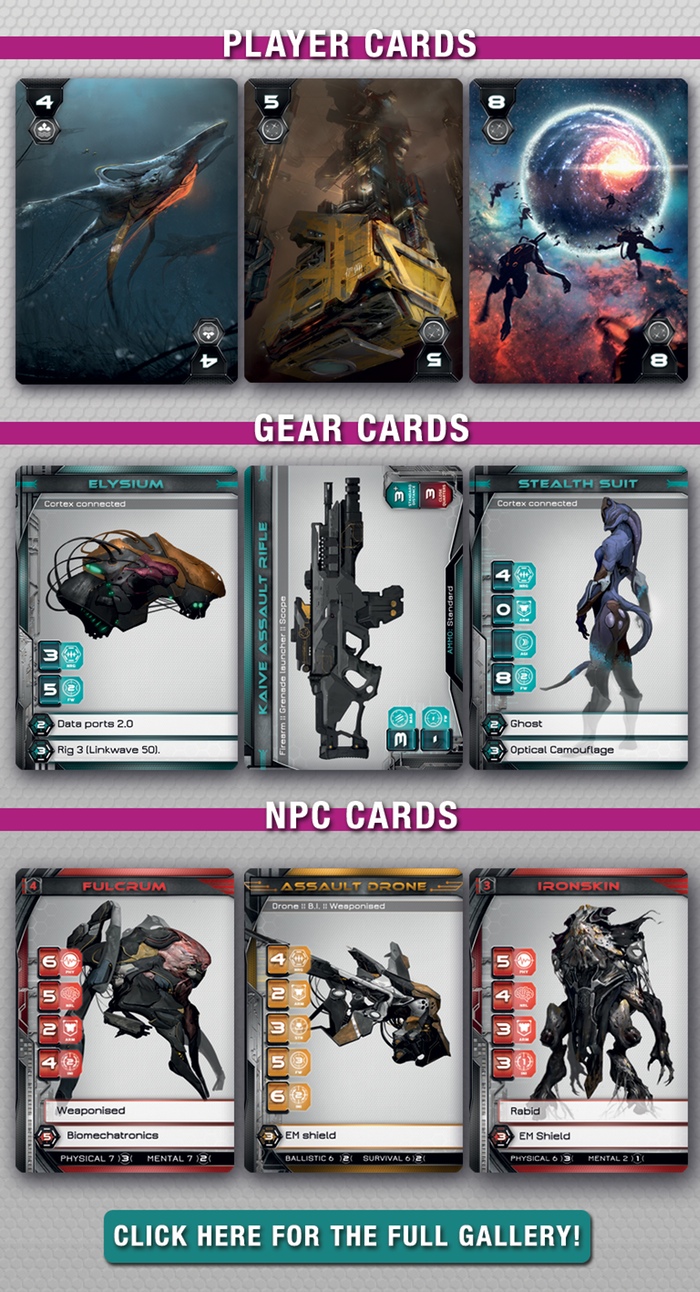
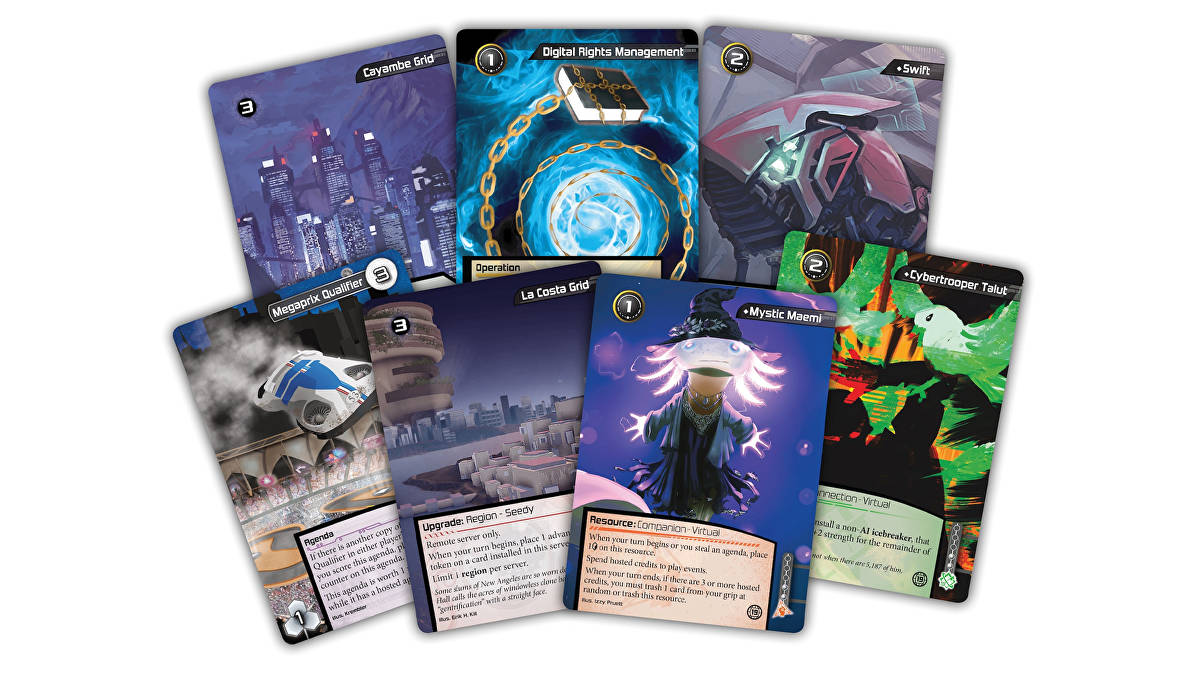
1KBWC (1000 Blank White Cards)
“At its simplest, a card is just that: a physical card, which may or may not have undergone any modifications. Its role in the game is both as itself and as whatever information it carries, which can be changed, erased or amended. Many cards have been created which demanded their own modification, destruction or duplication, and many have been created which display nothing but a picture or text bearing no explicit significance whatsoever. Some have been eaten, burned, or cut and folded into other shapes. As conceived, the game is not inherently limited in length or scope, is radically self-modifying, and can contain references to, or actual instances of, other games or activities. The game can also encode algorithms (trivially functioning as a Turing machine), store real-world data, and hold or refer to non-card objects.” 1000 Blank White Cards (Wikipedia)
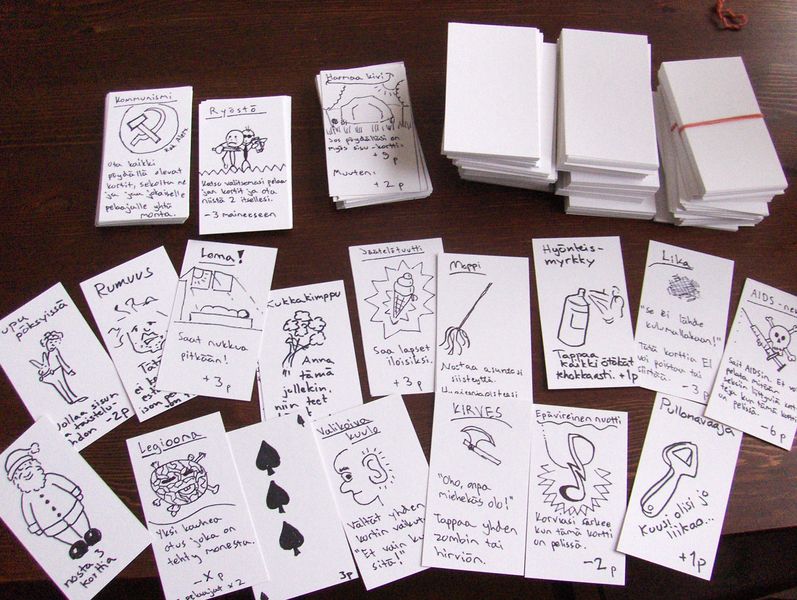
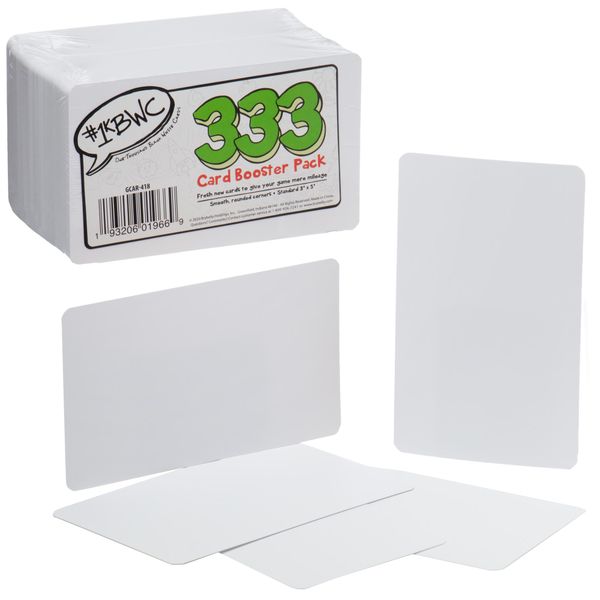
Kabufuda / Hanufuda
Hanafuda and Kabufuda “cards are tiny, only 2 1/8 by 1 1/4 inches (54 x 32 mm), but about three times thicker than Western cards. […] There are twelve suits, representing months of the year. Each is designated by a flower and has four cards. The point values should be considered merely as a ranking mechanism, as the most popular games only concern themselves with certain combinations of taken cards. ”
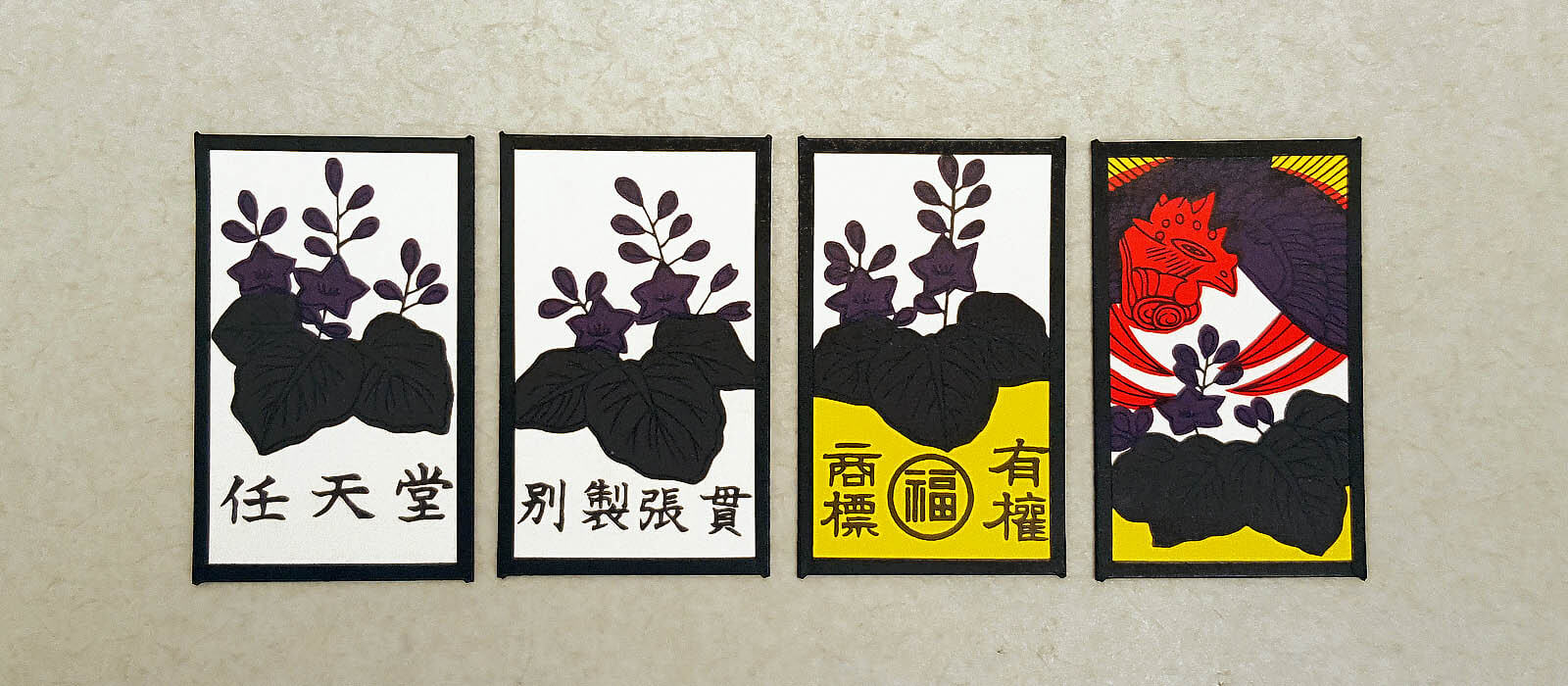
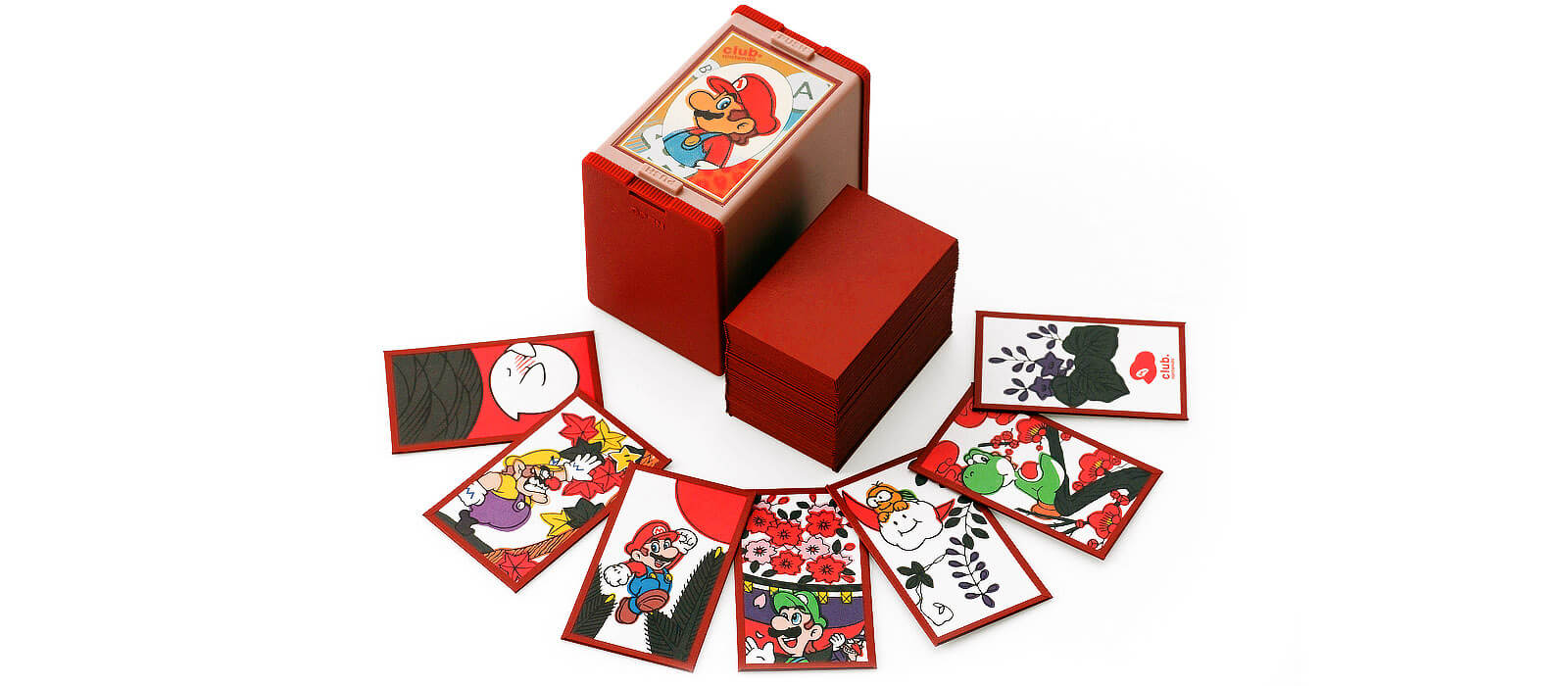
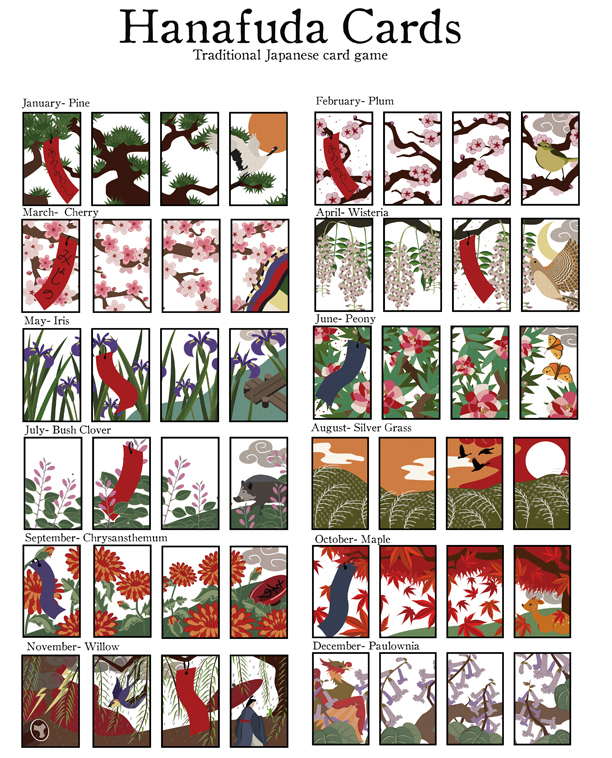
Dasavatara Ganjifa
“Ganjifa cards are used in India, Pakistan, Iran and Turkey, and are usually hand-painted. This version was printed chromo-lithographically by the Chitrasala Press in around 1950. Ten suits of twelve cards, each suit is based on one of the ten incarnations of Vishnu. An upper court card, Raja, a lower court card, Pradhan or Mantri, and ten numerals in each suit. Suits are: Matsya (fish), Kurma (turtle), Varaha (boar), Narasimha (lion), Vamana (water pot), Parashurama (axe), Rama (bow & arrow, or monkey), Krishna (quoit or cow), Buddha (conch) and Kalkin (sword or horse).” https://www.wopc.co.uk/india/dasavatara
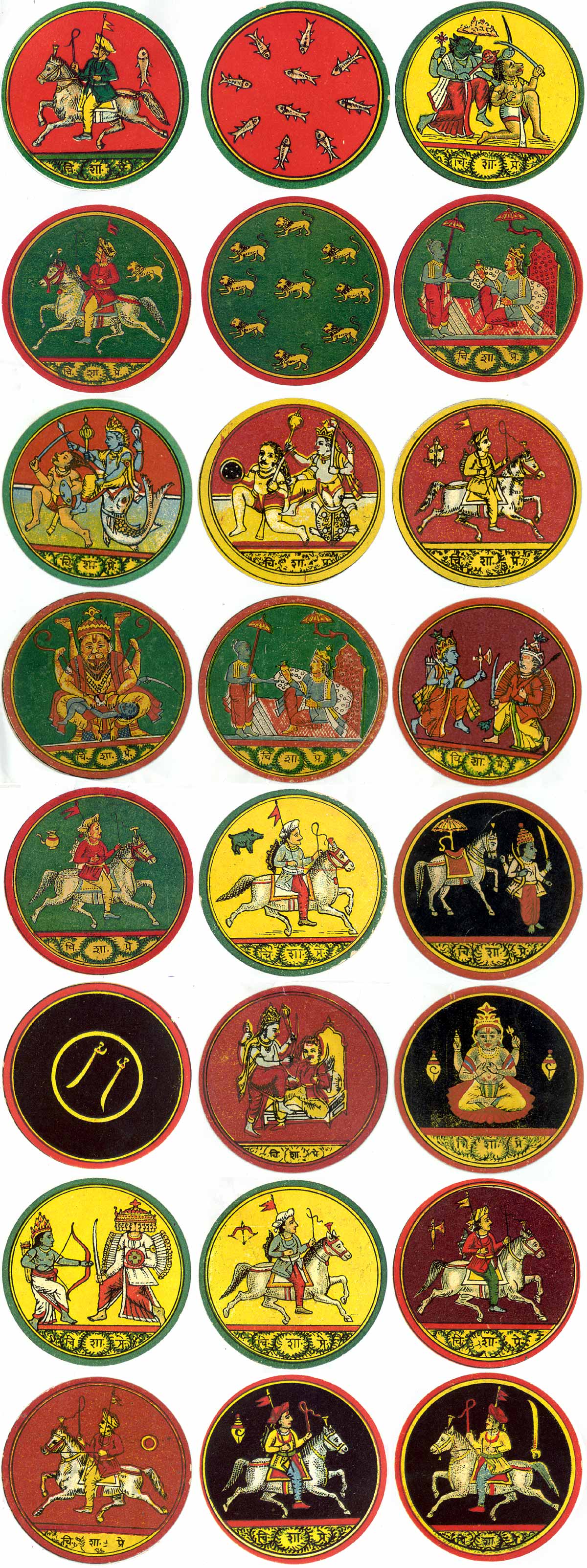
The Children’s Alphabetical Packs
“At least three different editions of the cards were published; two with Marathi text and a third edition in Urdu. The cards were obviously intended as a game for fun but also with an educational agenda, i.e. the teaching of reading, matching and etiquette.”
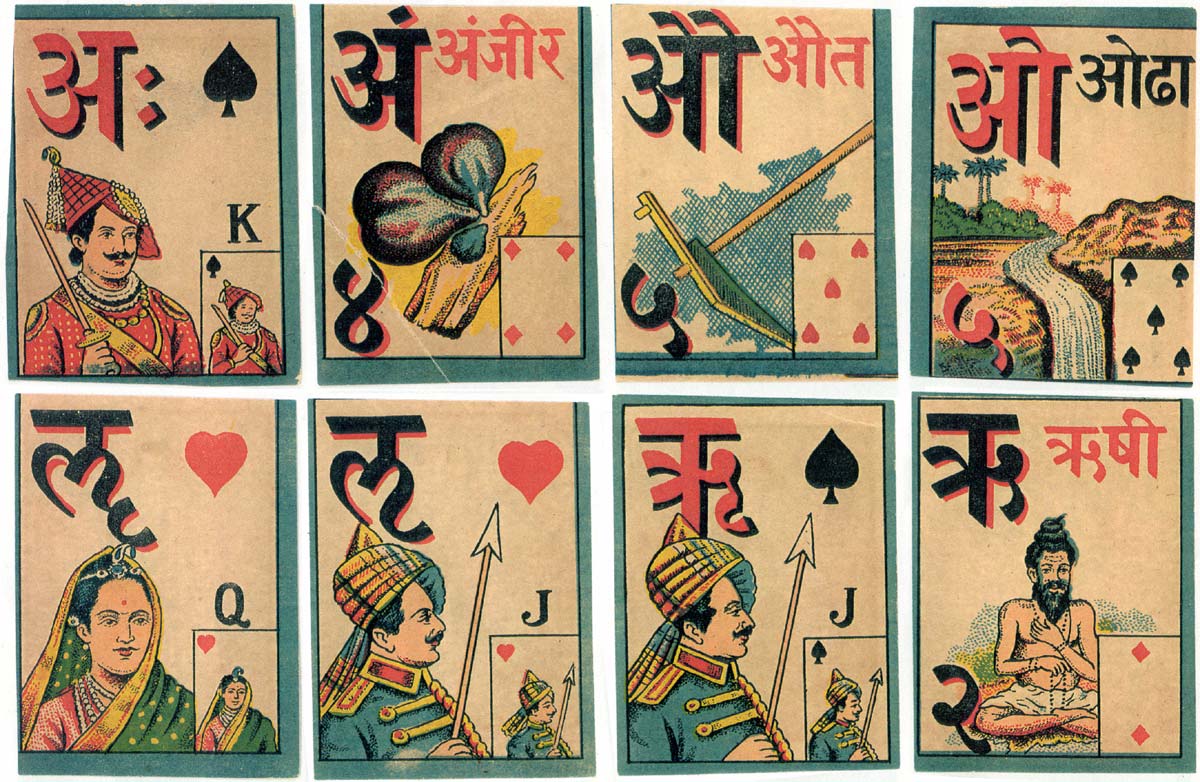
Tonalamatl
“Baraja Tonalamatl Mexican Aztec playing cards based on the prehispanic Codex Borgia manuscript - “A synthesis of Mesoamerican Cosmogonical, Chronometrical, Astronomical and Mathematical thought”. The cards run from 1 - 13 in each colour, plus 20 violet cards and six extra cards, making a total of 78 cards.“ https://www.wopc.co.uk/mexico/tonalamatl
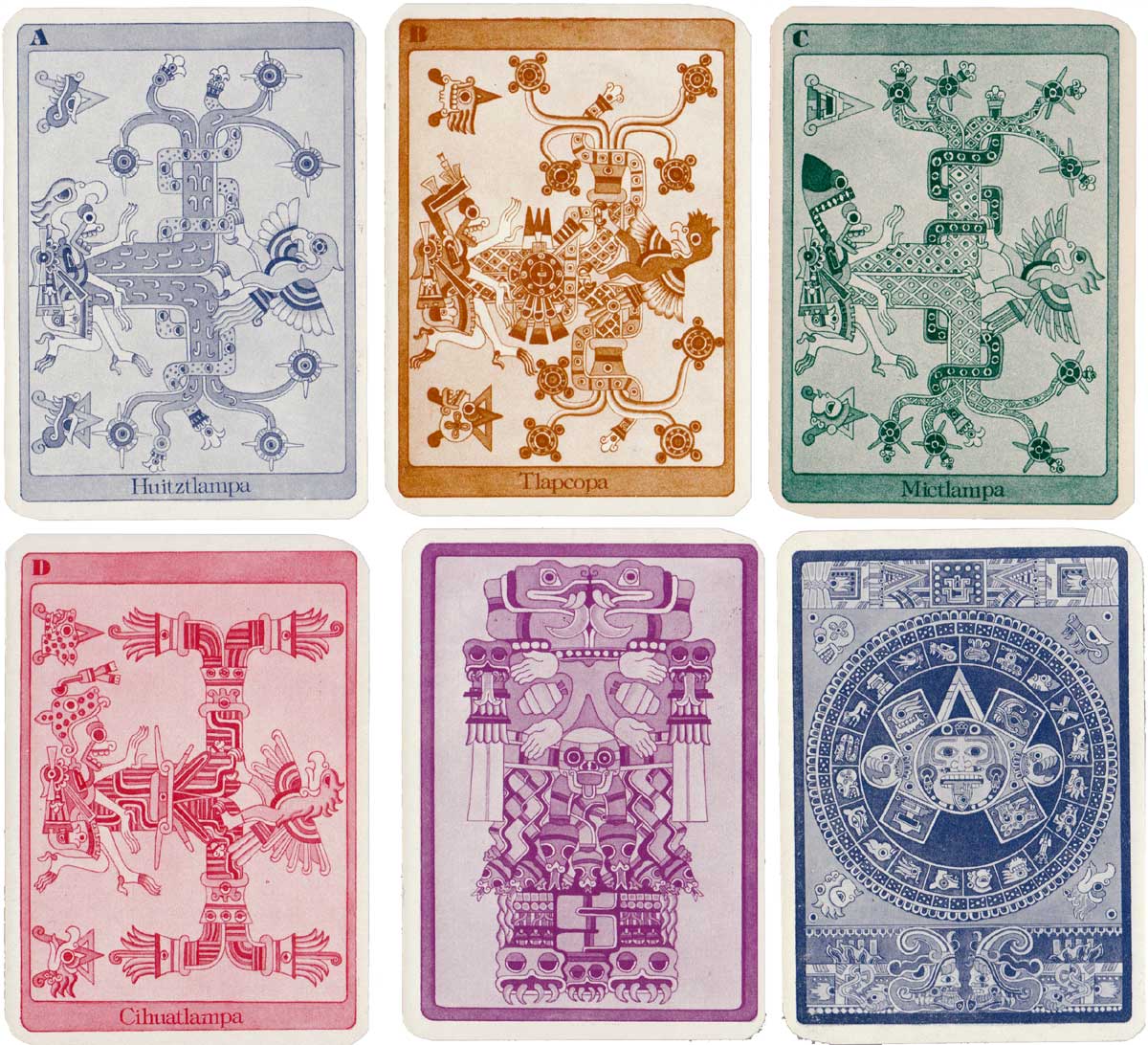
Hakka (客家)
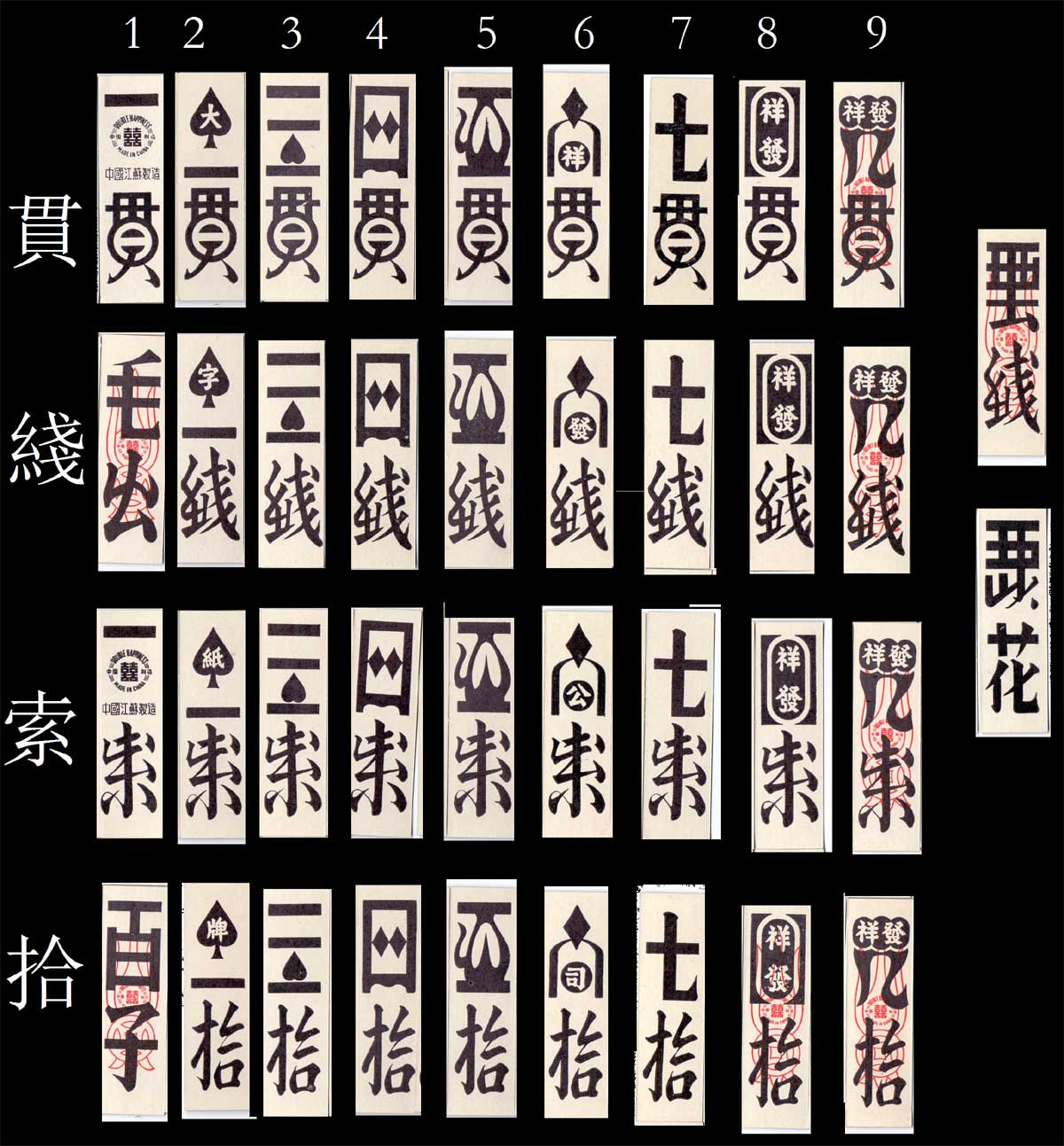
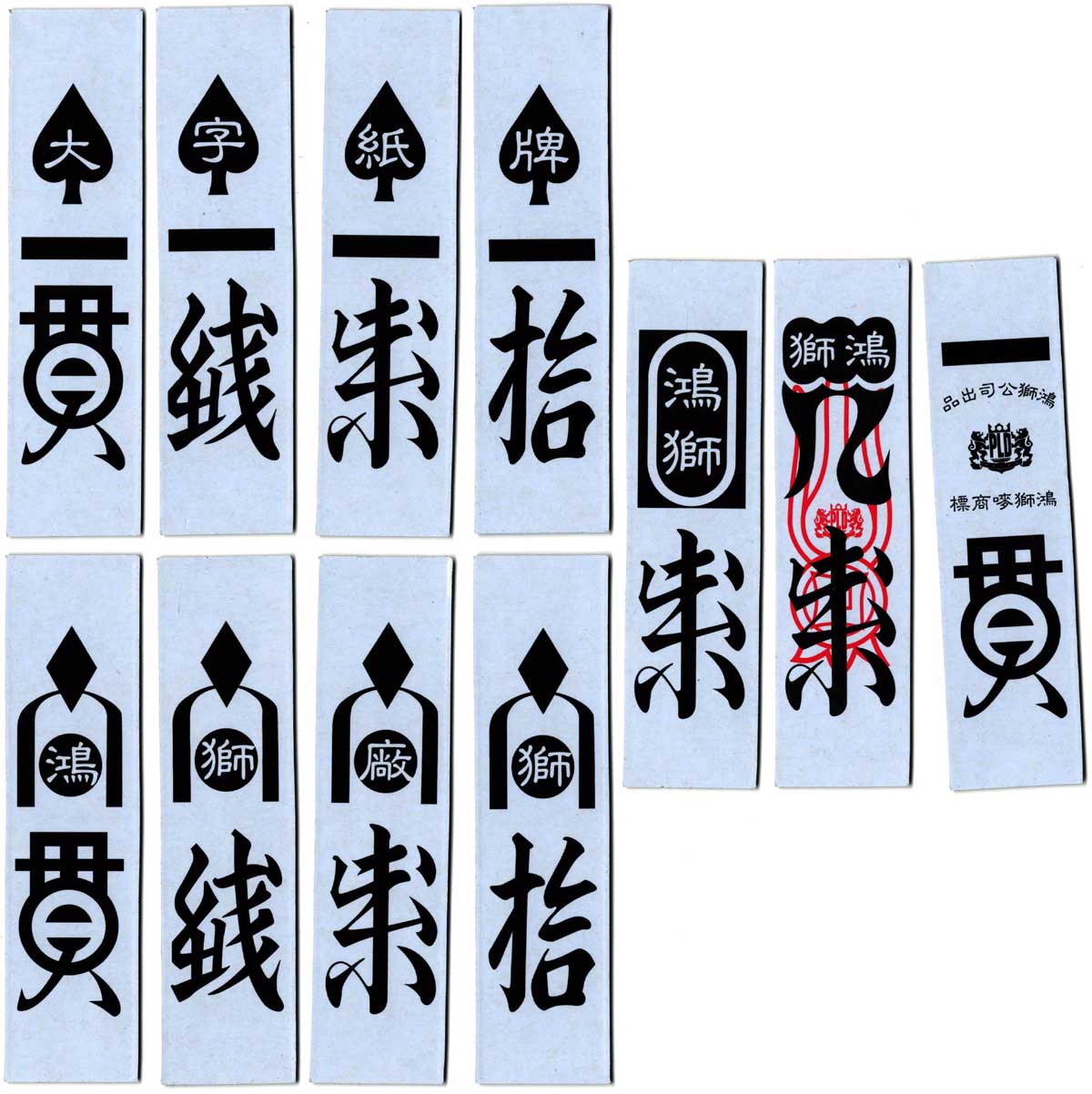
Logica Memorativa
‘Influenced by Byzantium, Vittorino da Feltre's school 'La Giocosa' revived in Italy the habit of using exercise-games in elementary levels of teaching. From that model, perhaps, the Franciscan named Thomas Murner in the late fifteenth century devised his course for teaching elements of logic. He presented students (in parallel with his 16 written lectures as 'Letters' or charta), with suites of practical exercises and mnemonic diagrams to supplement and reinforce students' memory of the material. Each lecture was linked with its associated exercises and diagrams by use of a common emblem, the 16 emblems speaking to philosophical symbolism and to stages of progress through academe's 'little year.' ’ https://www.wopc.co.uk/germany/murner

corners, miniatures & indices
“My invention consists in combining a number or letter with an emblem - such as a heart, spade, club or diamond - so that upon seeing the emblem, which may be in a corner, the denomination of the card is at once understood.” https://www.wopc.co.uk/cards/corner-indices
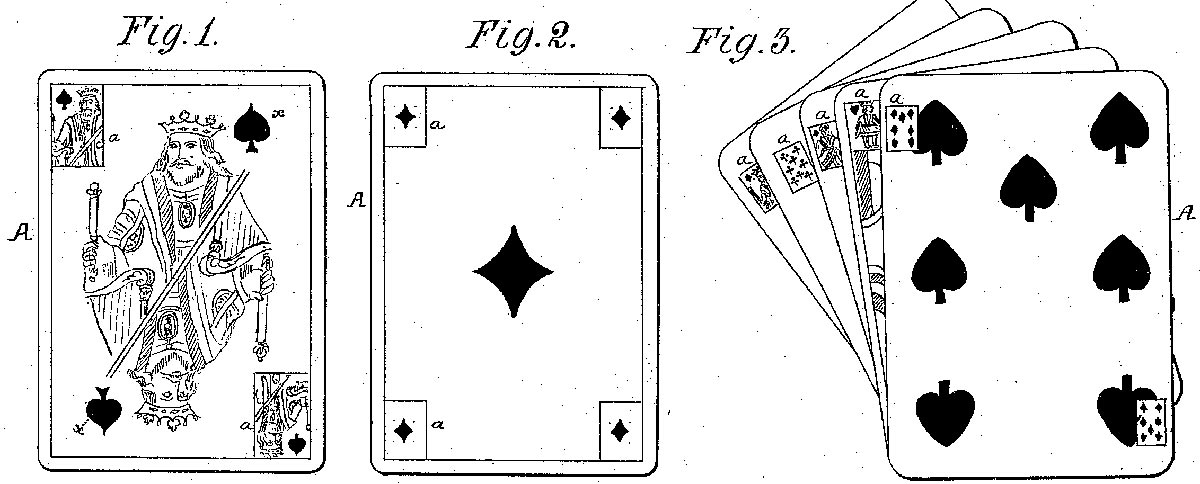

miscellanea
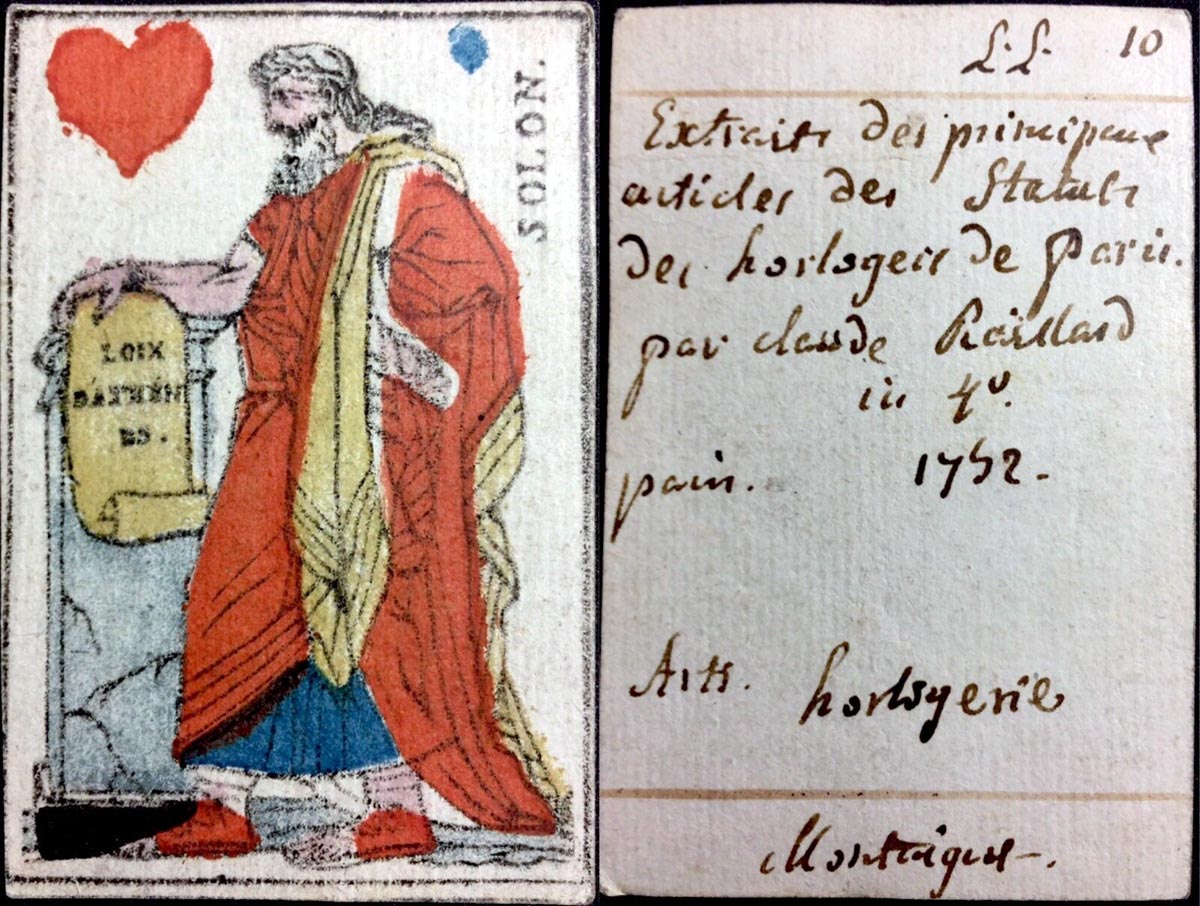
“Card RPGs seem to be all the rage now and there is good reason for that: phones. It’s an easy concept to toss out to people on their commute and when trying to kill some time.” https://www.thegamer.com/best-card-rpgs-ranked/
design in progress > https://www.kickstarter.com/discover/advanced?term=cards
 |
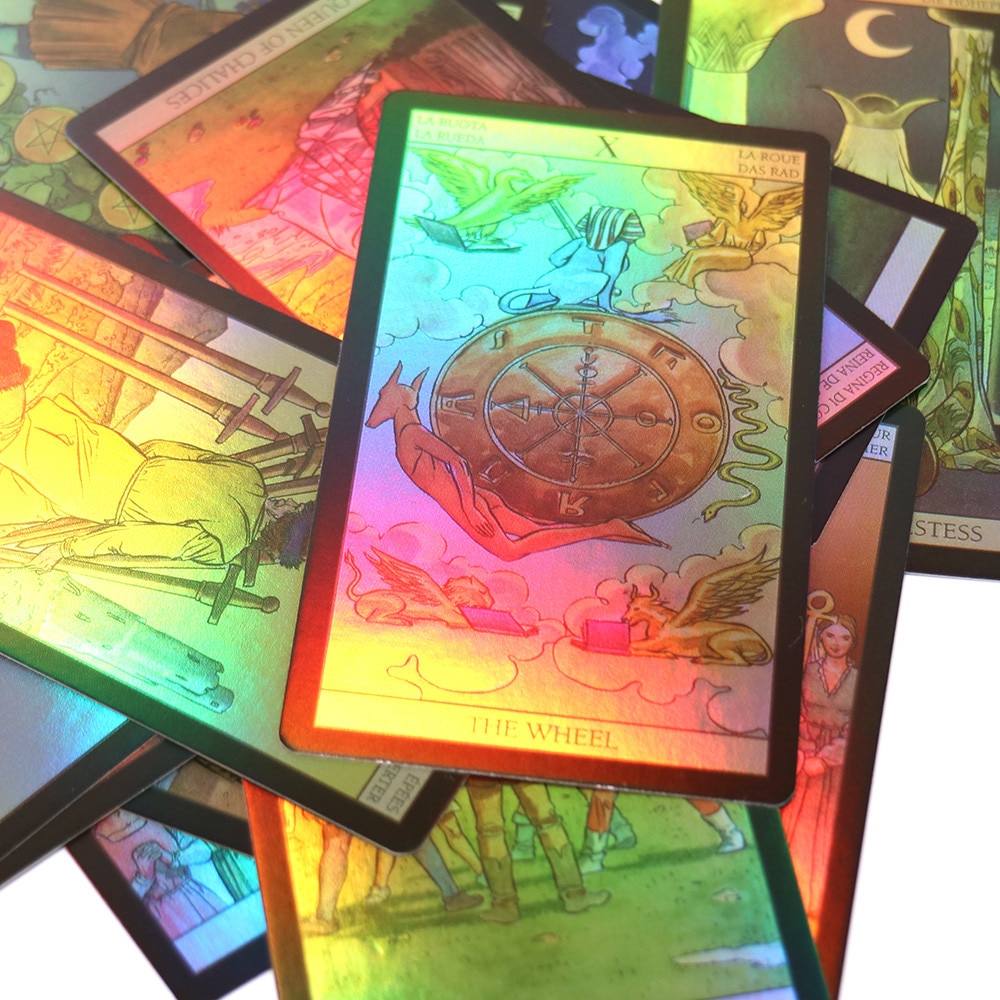 |
| L | T |
various artists



